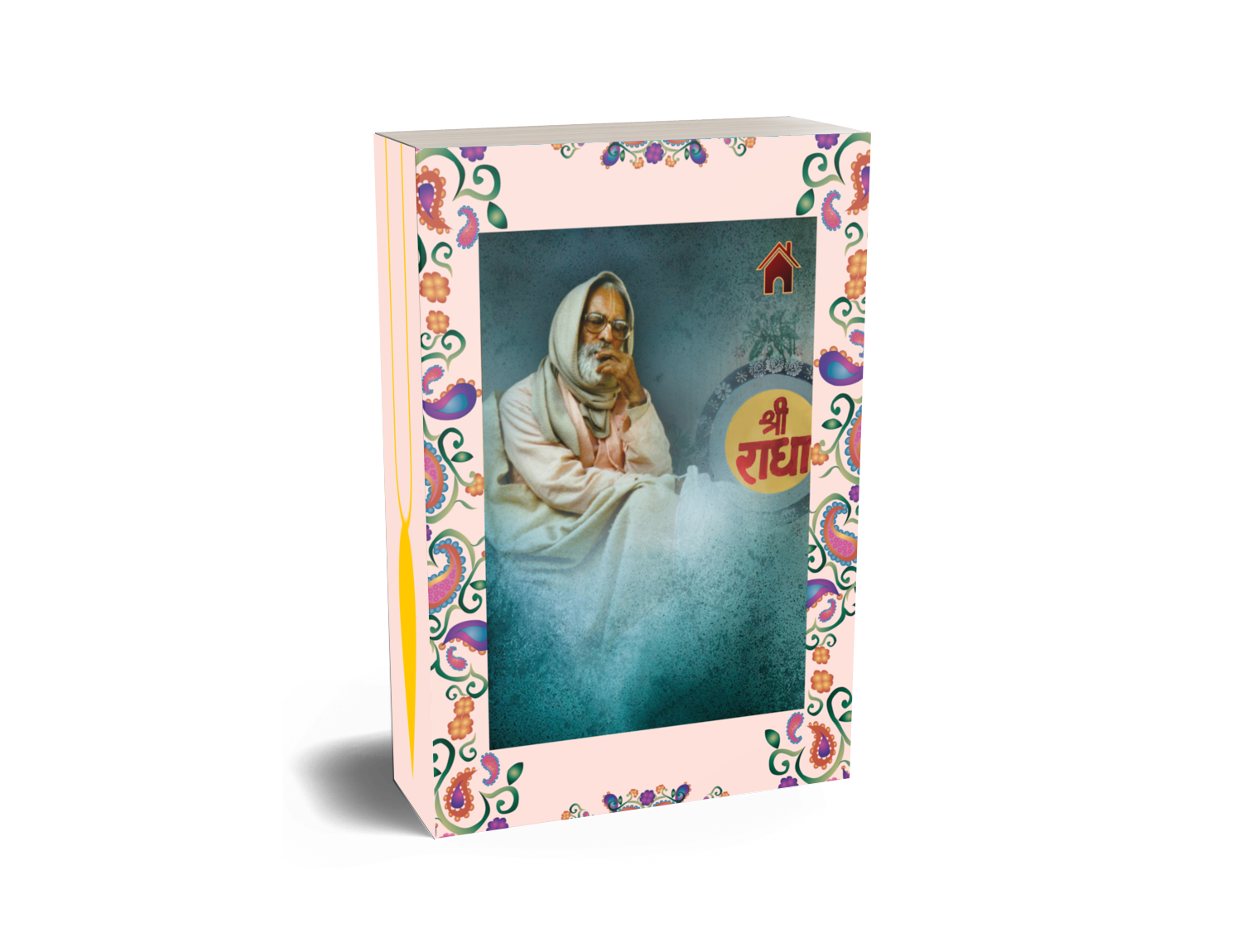

The following is an excerpt from a lecture on The Nectar of Devotion delivered by Śrīla Bhaktivedānta Svāmī Prabhupāda in Vṛndāvana, India, on October 26, 1972 (Vedabase.com)
Śrīla Bhaktivedānta Svāmī Prabhupāda: So Kṛṣṇa is described as akhila-rasāmṛta-sindhu. So there are different rasas, five primary rasas. Rasa means the mellow, or the taste, which we enjoy in every activity. That is called rasa. Everything is done with some taste. Whatever you do, you must enjoy some taste out of it. So there are twelve rasas, out of which five rasas are primary and seven rasas are secondary. They are described here.

The following is an excerpt from The Nectar of Devotion by Śrīla Bhaktivedānta Svāmī Prabhupāda (Vedabase.com)
The word rasa, used in the Bhakti-rasāmṛta-sindhu, is understood by different persons differently because the 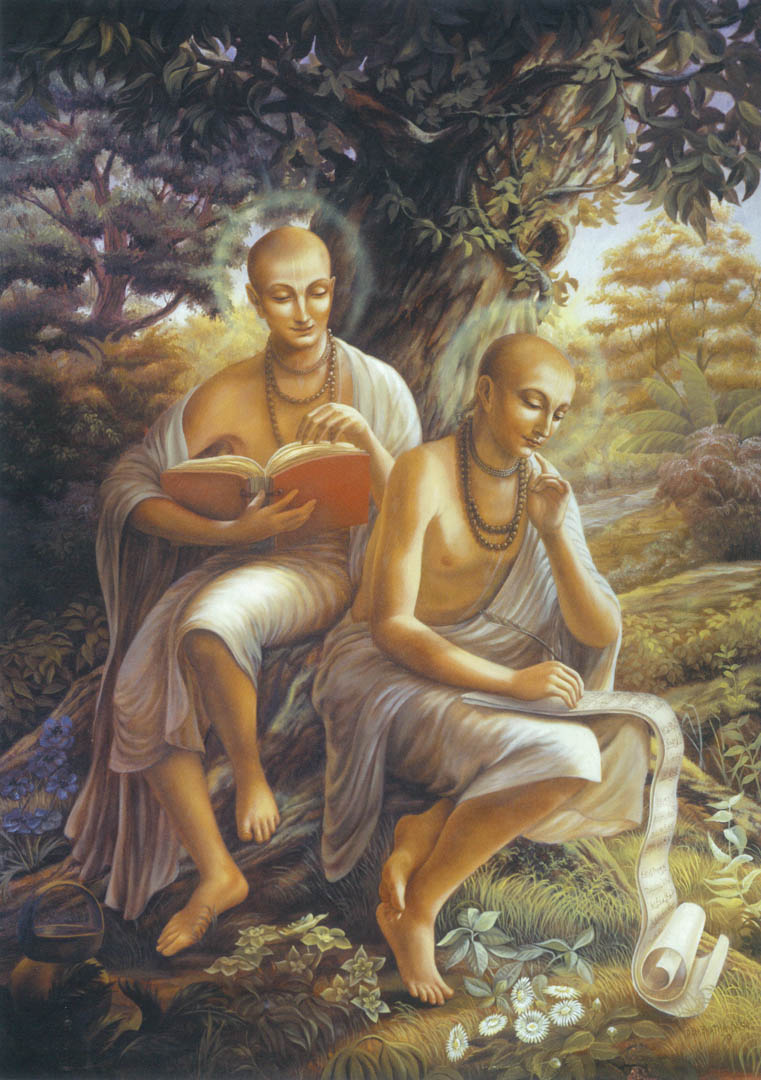 exact English equivalent is very difficult to find. But as we have seen our spiritual master translate this word rasa into “mellow,” we shall follow in his footsteps and also translate the word in that way.
exact English equivalent is very difficult to find. But as we have seen our spiritual master translate this word rasa into “mellow,” we shall follow in his footsteps and also translate the word in that way.
The particular loving mood or attitude relished in the exchange of love with the Supreme Personality of Godhead is called rasa, or mellow. The different types of rasa, when combined together, help one to taste the mellow of devotional service in the highest degree of transcendental ecstasy. Such a position, although entirely transcendental to our experience, will be explained in this section as far as possible, following in the footsteps of Śrīla Rūpa Gosvāmī.
Without relishing some sort of mellow, or loving mood, in one’s activities, no one can continue to perform such activities. Similarly, in the transcendental life of Kṛṣṇa consciousness and devotional service there must be some mellow, or specific taste, from the service. Generally this mellow is experienced by chanting, hearing, worshipping in the temple and being engaged in the service of the Lord. So when a person feels transcendental bliss, that is called “relishing the mellow.” To be more clear, we may understand that the various feelings of happiness derived from discharging devotional service may be termed the “mellows” of devotional service.

The following is an excerpt from a darśana with Śrīla Bhaktivedānta Nārāyaṇa Mahārāja in Vṛndāvana, India, June 1992 (Purebhakti.com)
Rasa-varjaṁ raso ’py asya paraṁ dṛṣṭvā nivartate. That spiritual rasa (the mellow taste in one’s relationship with Krsna) is more tasteful than this worldly rasa (the taste in any mundane relationship). The material mind is made of matter, so it always engages in worldly rasa. However, if it experiences a more beautiful taste – Śrī Kṛṣṇa – then it will have no time to come here to this world.

Excerpt from Ācārya Kesarī Śrī Śrīmad Bhakti Prajñāna Keśava Gosvāmī – His Life and Teachings, 2nd Edition by Śrīla Bhaktivedānta Nārāyaṇa Mahārāja (Purebhakti.com)
Among Kṛṣṇa’s pastimes, vraja-līlā is the best of all, because in this very pastime the highest benefit of all the jīvas is obtained in regard to rasa. Logicians and worldly moralists cannot touch the glories of kṛṣṇa-līlā. Vraja-līlā is composed entirely of rasa, and those who can carry this līlā in their hearts are very fortunate. Only those fortunate devotees who have tasted the sweetness of vraja-līlā can know its sweetness. It is impossible to enter this subject by logic, morality, knowledge, yoga, religion or irreligion.
Śrī Kṛṣṇa, the embodiment of rasa, is the Supreme Reality, or para-brahma. At the same time, He is supremely rasika, expert in relishing the mellows of love. Therefore, although He is one, in order to taste rasa, He is eternally situated in four natural forms by the influence of His own inconceivable potency.
Śrīla Jīva Gosvāmī has described these four natural forms in his Bhagavat-sandarbha (14): “ekam eva taṁ  paramaṁ tattvaṁ svābhāvikācintyaśaktyā sarvadaiva svarūpa-tad-rūpa-vaibhavajīva-pradhāna-rūpeṇa caturddhāvatiṣṭhate, sūryāntara-maṇḍala-stha-teja iva, maṇḍalatad-bahirgata-raśmi-tat-praticchavi-raśmyādirūpeṇa – Parama-tattva is one. He is equipped with His inconceivable natural potency. With the assistance of that potency, He is eternally manifest in four forms: His original form (svarūpa); His personal splendour, which includes His abode, eternal associates and expansions such as Lord Nārāyaṇa (tad-rūpa-vaibhava); the living entities (jīvas); and the unmanifest state of the three modes of material nature (pradhāna). There are some simple examples which partially illustrate this point. The four features may be compared to the effulgence situated in the interior of the sun planet, the sun globe, the rays of the sun emanating out from the globe, and a remote reflection of the sun, respectively.”
paramaṁ tattvaṁ svābhāvikācintyaśaktyā sarvadaiva svarūpa-tad-rūpa-vaibhavajīva-pradhāna-rūpeṇa caturddhāvatiṣṭhate, sūryāntara-maṇḍala-stha-teja iva, maṇḍalatad-bahirgata-raśmi-tat-praticchavi-raśmyādirūpeṇa – Parama-tattva is one. He is equipped with His inconceivable natural potency. With the assistance of that potency, He is eternally manifest in four forms: His original form (svarūpa); His personal splendour, which includes His abode, eternal associates and expansions such as Lord Nārāyaṇa (tad-rūpa-vaibhava); the living entities (jīvas); and the unmanifest state of the three modes of material nature (pradhāna). There are some simple examples which partially illustrate this point. The four features may be compared to the effulgence situated in the interior of the sun planet, the sun globe, the rays of the sun emanating out from the globe, and a remote reflection of the sun, respectively.”

An excerpt from a lecture delivered by Śrīla Bhaktivedānta Nārāyaṇa Mahārāja in Murwillumbah, Australia, on February 7, 2004 (Purebhakti.com)
On the other hand those who have tattva-jñāna, knowledge of all the established philosophical truths, who know who is Kṛṣṇa, who is Śrīmatī Rādhikā, what is māyā or illusion, what is prema or pure love of God, what is rasa or the mellows of that love are called jñānī-bhaktas. They are not jñānīs; they are bhaktas who have knowledge of Lord Kṛṣṇa’s divinity and of the Divinity’s unlimited opulence.

The following is an excerpt from a darśana with Śrīla Bhaktivedānta Nārāyaṇa Mahārāja in Los Angeles, California, on June 8, 1998 (Purebhakti.com)
Devotee: Are all other rasas (relationships with Śrī Kṛṣṇa) within mādhurya-rasa (the relationship with Śrī Kṛṣṇa as a lover)? Does mādhurya-rasa contain all the other relationships? In mādhurya-rasa, does one taste the other rasas?
Śrīla Bhaktivedānta Nārāyaṇa Mahārāja: Śrīmatī Rādhikā sometimes rebukes Kṛṣṇa as a friend would do. She may say to Him, Oh, massage my feet, as friends might say to each other. Sometimes She may serve Kṛṣṇa 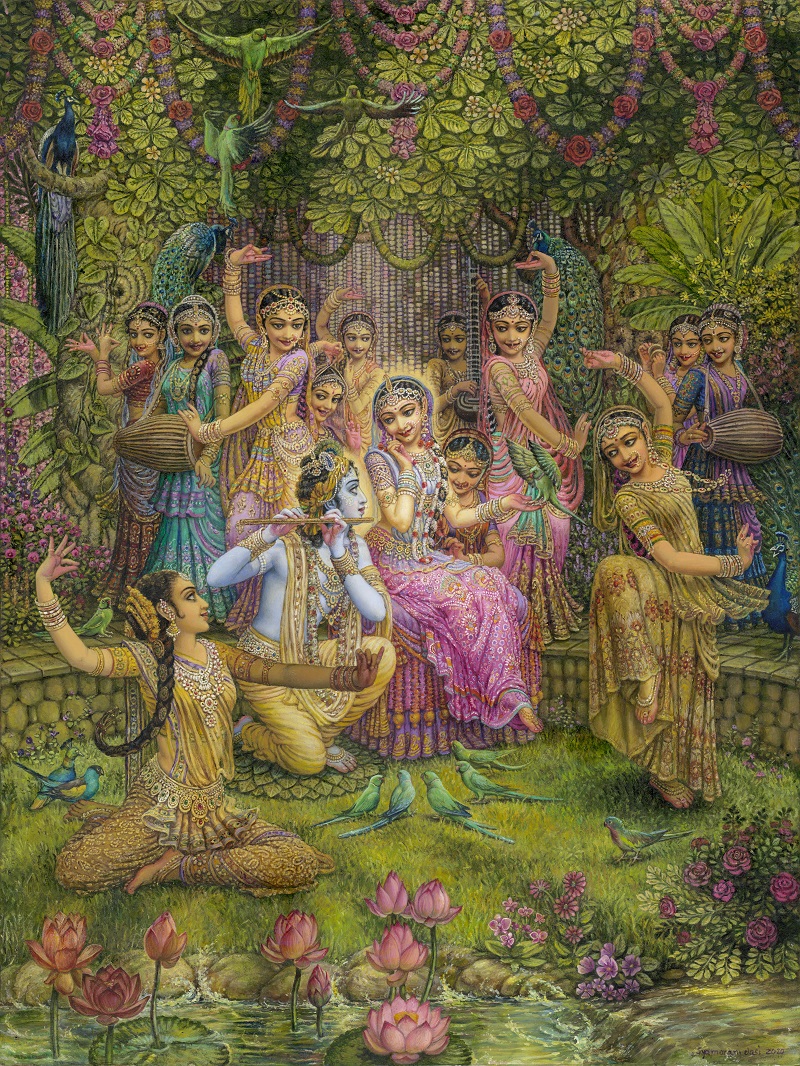 better than a mother would do. Sometimes She serves Him so much better than the best of servants (like Hanumān or others like him). And sometimes She serves as a beloved. No one can serve Kṛṣṇa as She does; every mood is in Her that is mādhurya-rasa.
better than a mother would do. Sometimes She serves Him so much better than the best of servants (like Hanumān or others like him). And sometimes She serves as a beloved. No one can serve Kṛṣṇa as She does; every mood is in Her that is mādhurya-rasa.
Sometimes Kṛṣṇa and the gopīs gamble; this is a type of play among friends. Sometimes the gopīs clap to congratulate Śrīmatī Rādhikā on Her victory. They call out, Oh, Rādhikā has defeated Kṛṣṇa! At that time, Madhumaṅgala and other cowherd-boys say, Oh Kṛṣṇa, let us leave now; otherwise You will have to become their servant, and then they will very quickly take Your flute and crown and everything else. So let us leave here right away. All relationships are in mādhurya-rasa, and that is why it is best among all rasas.
If you do not pay something for this, you cannot develop all these moods. Your heart is the dakṣiṇā (donation given by the disciple at the time of receiving initiation). By giving your heart, you can realize these moods. If you have no faith, if you do not regularly hear hari-kathā, and if you are not paying dakṣiṇā, these moods will not enter your heart.
If our hearts are saturated with the bhakti-rasa of Vṛndāvana, then we are ISKCON members in the truest sense. If anyone is falling down, he was never a real ISKCON member, because anyone who has a taste in bhakti-rasa will never fall down. A true ISKCON member can never fall down.
In bhakti-rasa (intimate devotion to Kṛṣṇa while thinking of oneself in a relationship with Him as an ordinary cowherd boy), Kṛṣṇa is not anyone’s father or mother. In the understanding of pure bhakti, the Supreme Lord cannot be anyone’s father or mother – He may only be a son. We can serve Kṛṣṇa in any of the four relationships, but if we think that He is our father or mother, we cannot serve Him, because fathers and mothers serve their children.

The following is an excerpt from Svarūpa of the Jīva – Our Original Spiritual Identity, A Treasury of Wisdom from Prominent Gauḍīya Vaiṣṇava Ācāryas (Purebhakti.com)
“Bhagavān has bestowed a vast variety of tastes among His devotees. The reason is that by constantly 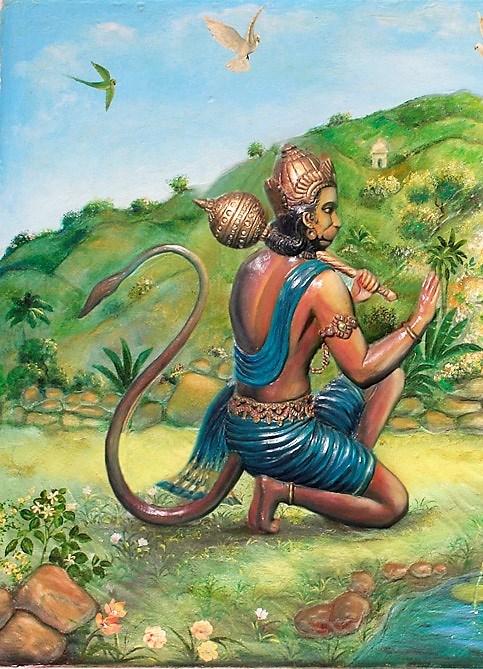 expanding His pastimes in ever-new ways, He gets the opportunity to relish all these sweet flavours. Otherwise, it would not be possible to taste such sweetness. In this way, as the Lord expands the opulence of His manifold pastimes, His devotees experience His grace according to their respective tastes. Considering their respective moods to be topmost, and tasting the mellows related to those moods, they are fully satisfied.”*
expanding His pastimes in ever-new ways, He gets the opportunity to relish all these sweet flavours. Otherwise, it would not be possible to taste such sweetness. In this way, as the Lord expands the opulence of His manifold pastimes, His devotees experience His grace according to their respective tastes. Considering their respective moods to be topmost, and tasting the mellows related to those moods, they are fully satisfied.”*
* It is natural that because Kṛṣṇa is the reservoir of all the rasas, He has invested different jīvas with different tastes, or rasas; and by nature, the jīvas are attracted to their own rasa and nothing else. Bhagavān has created all rasas in such a way that those who have taste for a certain rasa will not have taste to serve in any other. Depending on the rasa of a devotee, the devotee will engage in that service only, and the Lord also has a taste only for the devotee’s performance of that service. (Śrīla Bhakti Vijñāna Bhāratī Gosvāmī Mahārāja: December 15, 2015, Chandigarh)

The following is an excerpt from an airport darśana with Śrīla Bhaktivedānta Nārāyaṇa Mahārāja in Kuala Lumpur, Malaysia, on April 25, 2005 (Purebhakti.com)
Devotee: Most everybody who comes to you has mādhurya-rasa and this bhāva-ullāsa-rati as their svarūpa?
Śrīla Bhaktivedānta Nārāyaṇa Mahārāja: I know that generally those who came to Mahāprabhu had that svarūpa. Some exceptions were there, but almost all were in mādhurya-rasa.
Devotee: And similarly those who came to the gurus in His line?
Śrīla Bhaktivedānta Nārāyaṇa Mahārāja: From siddha bhaktas to sādhaka bhaktas. Somehow I also came. I  was out of touch with any Gauḍīya Vaiṣṇava. I was in Bihar, serving here and there; but now I am like a teacher, preaching this line everywhere. This is a miracle.
was out of touch with any Gauḍīya Vaiṣṇava. I was in Bihar, serving here and there; but now I am like a teacher, preaching this line everywhere. This is a miracle.
How did I come? I was attracted by Śrī Caitanya Mahāprabhu and his followers. Pujyapāda Nṛsiṁha Mahārāja and Pujyapāda Trivikrama Mahārāja came to my door and brought me to my Gurudeva. I had thought I would serve Rāma, Lakṣmaṇa, Sītā and Hanumān, but the devotees changed my mood. Now I know that Kṛṣṇa is Rāma. Rāma is one of the rasas of Kṛṣṇa. Rāma is not full, in the sense that he is a plenary manifestation of the complete source of all incarnations, Śrī Kṛṣṇa. In Kṛṣṇa everything is full. Kṛṣṇa is Rāma. Rādhikā is Sītā – but in the mood of maryādā (etiquette, awe and reverence). I think that by their mercy I have come to this line of Śrī Caitanya Mahāprabhu and Śrī Kṛṣṇa.

The following is an excerpt from a conversation between Śrīla Bhaktivedānta Nārāyaṇa Mahārāja and several GBC members on Śrīla Viśvanātha Cakravartī Ṭhākura’s Rāga-vartma-candrikā, in Mathurā, India, 1991 (Purebhakti.com)
Tamāla-kṛṣṇa Mahārāja: Can we say that prema is the śakti (potency) of Kṛṣṇa, or not?
Śrīla Bhaktivedānta Nārāyaṇa Mahārāja: We may say so. Kṛṣṇa Himself is known as raso vai saḥ (the reservoir of divine mellows). Rasa is prema, prema is Kṛṣṇa, and Kṛṣṇa is prema. And, at the same time, prema is the śakti of Kṛṣṇa.
Śrīla Viśvanātha Cakravartī Ṭhākura explains that at the time of rāsa-līlā, Śrī Kṛṣṇa was sarvajña, all-knowing, 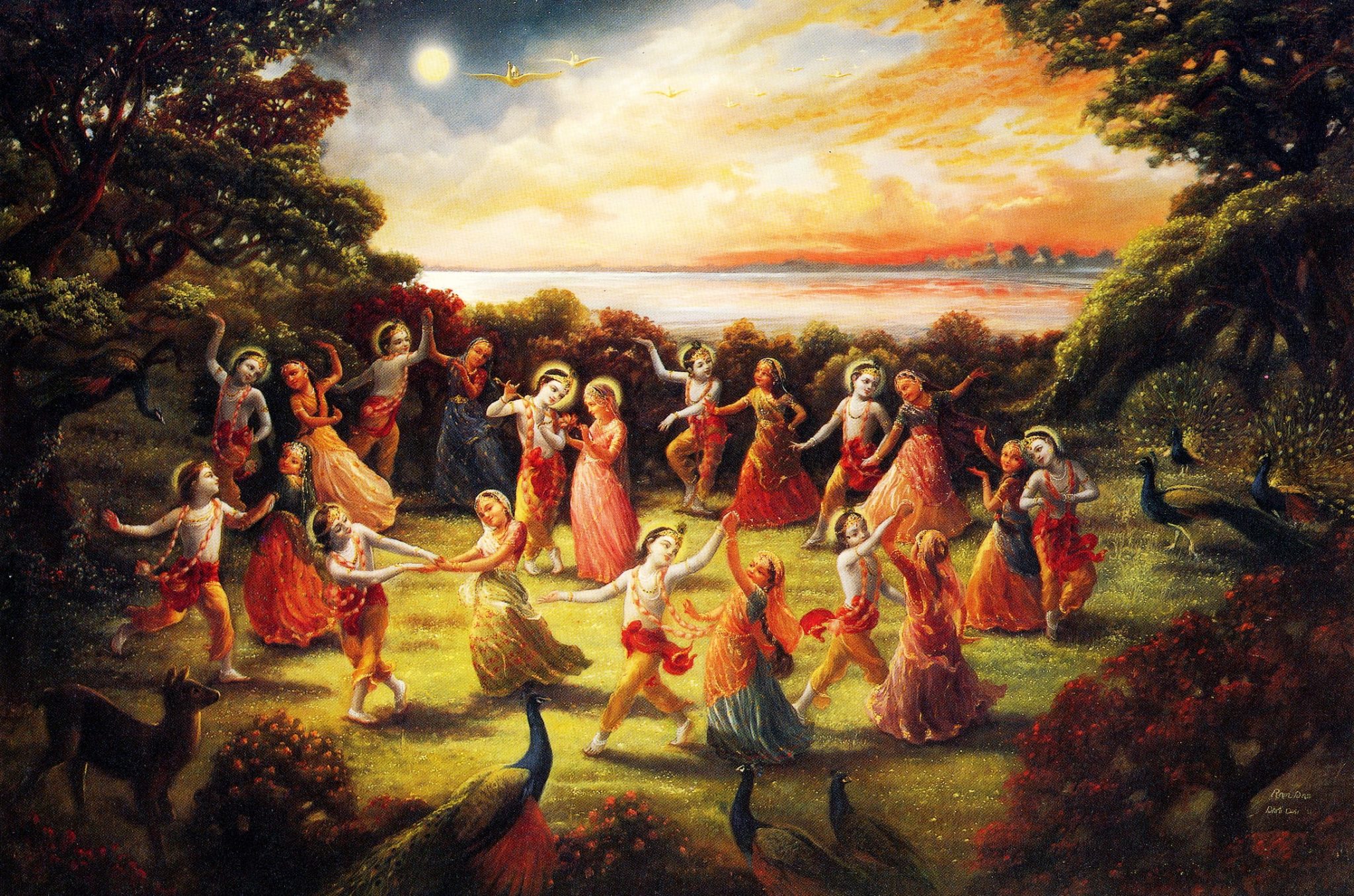 because He knew, “ All the gopīs love Me and want to dance with Me.” He knew this, and He therefore expanded into innumerable Kṛṣṇas. On the other hand, when He did whatever the gopīs desired and became controlled by them, He was mugdha, unaware of His aiśvarya. Both qualities are present in Him at the same time. Why? This is due to His acintya-śakti, His power to make the impossible possible. This is beyond all mundane logic.
because He knew, “ All the gopīs love Me and want to dance with Me.” He knew this, and He therefore expanded into innumerable Kṛṣṇas. On the other hand, when He did whatever the gopīs desired and became controlled by them, He was mugdha, unaware of His aiśvarya. Both qualities are present in Him at the same time. Why? This is due to His acintya-śakti, His power to make the impossible possible. This is beyond all mundane logic.
Śrīla Viśvanātha Cakravartī Ṭhākura then says that when, by vaidhī-bhakti, someone worships Nārāyaṇa, or Rāma, or any other plenary expansion of Kṛṣṇa, that devotee goes to Vaikuṇṭha after attaining perfection.

The following is an excerpt from a lecture on Śrīla Narottama dāsa Ṭhākura’s appearance day delivered by Śrīla Bhaktivedānta Nārāyaṇa Mahārāja in Bali, Indonesia, on February 22, 1997 (Purebhakti.com)
Those who have gone to Goloka Vṛndāvana are liberated from this world. Either they became liberated, or they are kāya–vyūha manifestations of Śrīmatī Rādhikā or nitya-siddha manifestations of Śrī Baladeva Prabhu. There is no mahā-māyā in Goloka Vṛndāvana, only yoga-māyā (Paurṇamāsī). Bad thoughts can never enter the hearts of Goloka residents. They are always tasting the mellows of kṛṣṇa-prema, so how can they fall? Śrīla Bhaktivedānta Svāmī Mahārāja has told this very clearly many times – I can show it, and others have also told so. We should not be in confusion and thus confuse others.
are kāya–vyūha manifestations of Śrīmatī Rādhikā or nitya-siddha manifestations of Śrī Baladeva Prabhu. There is no mahā-māyā in Goloka Vṛndāvana, only yoga-māyā (Paurṇamāsī). Bad thoughts can never enter the hearts of Goloka residents. They are always tasting the mellows of kṛṣṇa-prema, so how can they fall? Śrīla Bhaktivedānta Svāmī Mahārāja has told this very clearly many times – I can show it, and others have also told so. We should not be in confusion and thus confuse others.

Excerpt from Rāga-vartma-candrikā, a moonbeam to illuminate the path of spontaneous devotion, 2nd Edition by Śrīla Bhaktivedānta Nārāyaṇa Mahārāja (Purebhakti.com)
We see that ignorance (avidyā), as the function of the illusory potency (māyā), throws all living entities into the 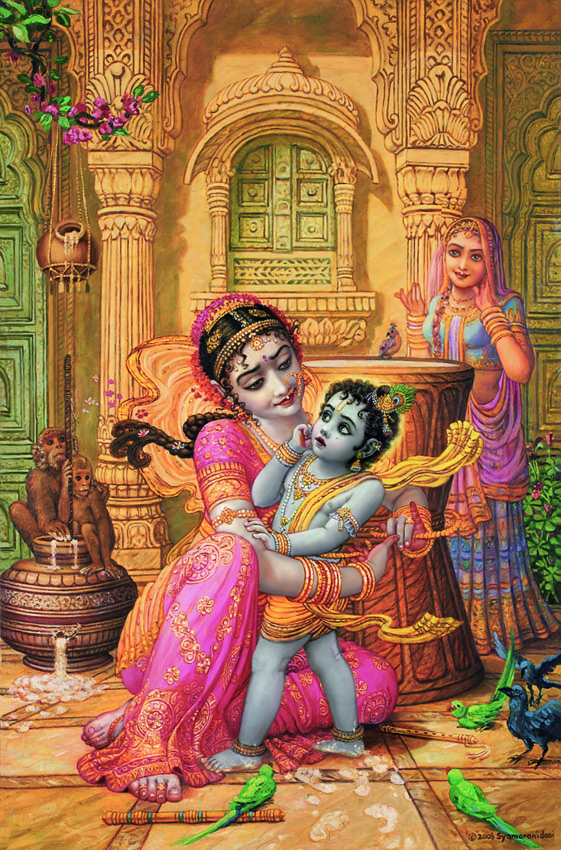 bondage of the material world and veils the knowledge of their constitutional position to make them experience only suffering. In the same way, the embodiment of the function of the spiritual potency (cit-śakti) – that is, the pastime potency (līlā-śakti) Yogamāyā – covers the knowledge of Śrī Kṛṣṇa’s associates such as Mother Yaśodā, who are beyond the three modes of nature. This enables them to taste the mellows of the happiness of Śrī Kṛṣṇa’s supremely sweet pastimes.
bondage of the material world and veils the knowledge of their constitutional position to make them experience only suffering. In the same way, the embodiment of the function of the spiritual potency (cit-śakti) – that is, the pastime potency (līlā-śakti) Yogamāyā – covers the knowledge of Śrī Kṛṣṇa’s associates such as Mother Yaśodā, who are beyond the three modes of nature. This enables them to taste the mellows of the happiness of Śrī Kṛṣṇa’s supremely sweet pastimes.
Similarly, the essence of cit-śakti, namely prema, also covers Śrī Kṛṣṇa’s own knowledge of His nature – that He is the very personification of divine pleasure itself (ānanda-svarūpa) – to enable Him to relish a greater abundance of ecstasy. Prema is also Kṛṣṇa’s internal, intrinsic potency (svarūpa-śakti). Therefore there is no fault in its covering His identity (svarūpa).

The following is an excerpt from Śrīla Bhaktivedānta Nārāyaṇa Mahārāja’s commentary to Śrī Rāya Rāmānanda Saṁvāda, Chapter 8 (Purebhakti.com)
There are three functions of svarūpa–śakti. Śrī Kṛṣṇa remains perpetually immersed in the ecstatic transformations of the bliss potency (hlādinī-śakti). By manifesting the internal and confidential devotional sentiments through the knowledge potency (saṁvit–śakti), He is always enjoying the mellows of loving exchanges. And by the existence potency (sandhinī–śakti), the pure abode of Vṛndāvana is manifested, where Śrī Kṛṣṇa, who always performs blissful pastimes, eternally sinks by His own volition in the ocean of vraja–rasa.

The following is an excerpt from Śrīla Bhaktivedānta Nārāyaṇa Mahārāja’s commentary on Śrī Dāmodarāṣṭakam, Verse 1 (Purebhakti.com)
Just see, with the mood of a simple mother, Śrī Yaśodā naturally regards Śrī Kṛṣṇa as her son and chastises  Him. Śrī Kṛṣṇa is offered worship everywhere else, but when He is in Vraja, He is the servant and the inhabitants of Vraja are His masters. On the command of the gopīs He begins to dance. He puts Nanda Bābā’s slippers on His head and delivers them to him. Under Yogamāyā’s influence, He forgets His supremacy and enacts His pastimes as an ordinary human being. This is called mādhurya-līlā, Śrī Kṛṣṇa’s honey-like pastimes. Although Śrī Kṛṣṇa’s pastimes in Vraja are full of opulence, that opulence does not even slightly stifle the love that the inhabitants of Vraja have for Him.
Him. Śrī Kṛṣṇa is offered worship everywhere else, but when He is in Vraja, He is the servant and the inhabitants of Vraja are His masters. On the command of the gopīs He begins to dance. He puts Nanda Bābā’s slippers on His head and delivers them to him. Under Yogamāyā’s influence, He forgets His supremacy and enacts His pastimes as an ordinary human being. This is called mādhurya-līlā, Śrī Kṛṣṇa’s honey-like pastimes. Although Śrī Kṛṣṇa’s pastimes in Vraja are full of opulence, that opulence does not even slightly stifle the love that the inhabitants of Vraja have for Him.
Instead, it invigorates their honey-like love causing it to condense even more. This is the speciality of the love in Vraja.
The practising devotee (sādhaka) should also desire to perform activities that will melt Śrī Kṛṣṇa’s heart. Śrī Kṛṣṇa will not be able to resist him for very long. He will accept that devotee with His whole heart and immerse him in His own sublime service.

Excerpt from The Essence of all advice, a collection of discourses on the nectar of instruction, 4th Edition by Śrīla Bhaktivedānta Nārāyaṇa Mahārāja (Purebhakti.com)
Thousands of educated Western youths are drinking the mellows of devotion (bhakti-rasa) and dancing, being overcome with spiritual joy. It is none other than Bhaktivinoda Ṭhākura who again inaugurated this flow of bhakti.

The following is an excerpt from the book The Greed of the Lord by Śrīla Gaura Govinda Svāmī Mahārāja, published by Tattva Vicara Publications (Tvpbooks.com)
The word laulya means lobha (greed). The purport of this verse is that if you have such spiritual greed you can achieve kṛṣṇa-bhakti-rasa, the mellow of love for Kṛṣṇa. Otherwise you cannot have it; you cannot achieve it.

Excerpt from A True Servant, A True Master, a collection of letters, from Śrīla Bhaktivedānta Vāmana Mahārāja (Purebhakti.com)
There is no limit to the fortune of those who are in Gaura-tīrtha (The holy land of Śrī Gaurahari), in Gauḍa-maṇḍala, on the banks of the celestial river [the Gaṅgā] and who, with devotion and a desire to serve the lotus feet of the vraja–rasa–rasikas (Connoisseurs of the mellows of Vraja) are absorbed in the intimate service of the Divine Couple Śrī Rādhā-Vinoda-bihārī.

An excerpt from a lecture delivered by Śrīla Bhaktivedānta Nārāyaṇa Mahārāja in Murwillumbah, Australia, on December 3, 2002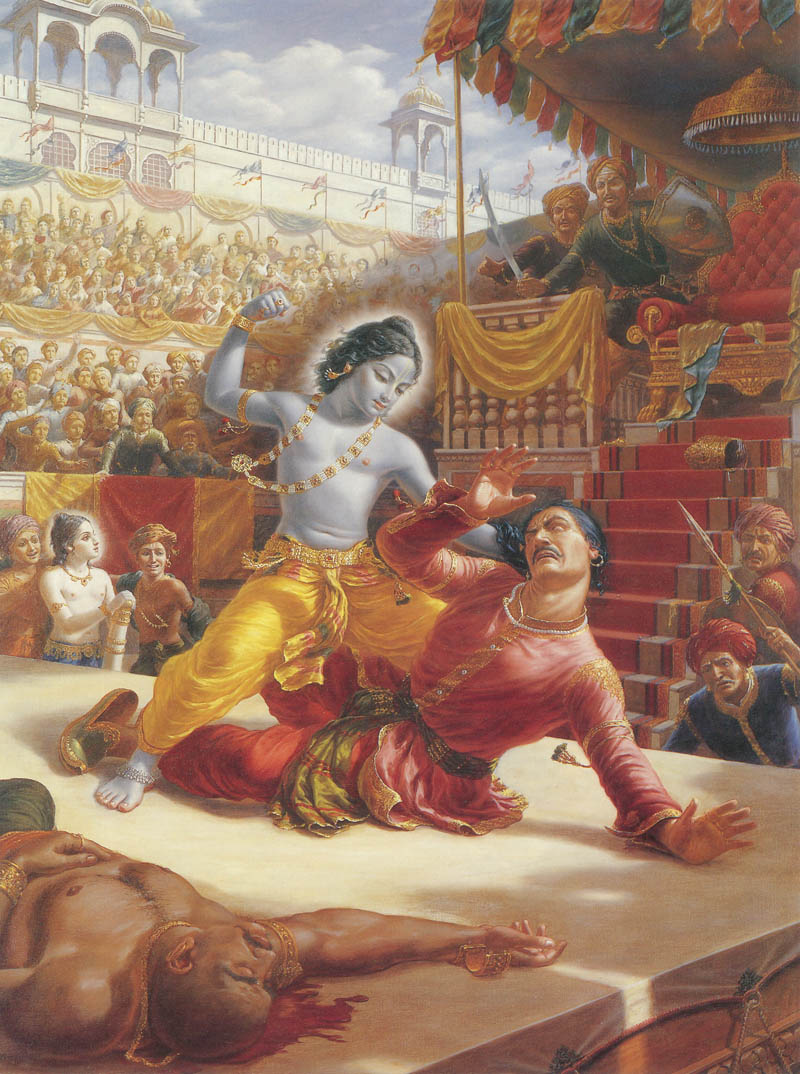
Similarly, if we imagine that we are meditating on Kṛṣṇa’s aṣṭa–kālīya–līlā and we have not reached the stage of rati, we will also not experience His sweetness. Rather, we will experience our own lusty and other material desires. In this connection, Kaṁsa and other demons represent our material desires.
Kṛṣṇa, and the realization of the sweetness of Kṛṣṇa, is our goal, but do not try to “jump up to the top of the tree.” Begin from the root of the tree and climb up from there; then you can realize your goal.

The following is an excerpt from Svarūpa of the Jīva – Our Original Spiritual Identity, A Treasury of Wisdom from Prominent Gauḍīya Vaiṣṇava Ācāryas (Purebhakti.com)
At that time, our ātmā, or soul, will be completely pure and we will realize prema. Kṛṣṇa’s name is the root of all these things.

The following is an excerpt from Heart and Halo: The Real Judgment of Love by Śrīla Bhakti Rakṣaka Śrīdhara Mahārāja (Scsmath.com)
Love is wonderfully above everything, surpassing all. Mahāprabhu asked us to accept the path of love, which means giving one’s heart, one’s self. It is so powerful, nothing else can attract Kṛṣṇa. He is very greedy to eat this love, this prema. He lives on prema. He is the Lord of love. That love has its inner existence; it is the inner existence of all of us. He is Love personified, and there is a tinge within us also; and like ‘birds of a feather’, love likes love.

Excerpt from the book Ācārya Kesarī Śrī Śrīmad Bhakti Prajñāna Keśava Gosvāmī – His Life and Teachings, 2nd Edition by Śrīla Bhaktivedānta Nārāyaṇa Mahārāja
These sakhīs do not have any desire to meet with Kṛṣṇa separately, and feel completely satisfied when they relish the moods of Śrīmatī Rādhikā in Her meeting with Him.

An excerpt from a lecture delivered by Śrīla Bhaktivedānta Nārāyaṇa Mahārāja in Birmingham, UK, on June 14, 2003 (Purebhakti.com)
There is some happiness in this world, but it is momentary and mixed with suffering. The happiness here is not continuous. It is not complete or pure. From the lowest planet to the highest, there are so many types of miseries and no eternal happiness.

Excerpt from Śrīmad Bhagavad-gītā, Fourth Edition by Śrīla Bhaktivedānta Nārāyaṇa Mahārāja (Purebhakti.com)
He imparted the instructions of Bhagavad-gītā, thus delivering the souls bewildered by this material world, who were drowning in the ocean of birth and death. He submerged them in the great ocean of transcendental love of Godhead by bestowing upon them a taste of His sweetness, beauty and other qualities.

Excerpt from The Fearless Prince, Third Edition by Śrīla Bhaktivedānta Nārāyaṇa Mahārāja (Purebhakti.com)
And the purpose of our existence is to share loving exchanges with the Supreme Person, who, whether we realize it or not, is always showering us with His love and mercy.
 The following is an excerpt from a lecture delivered by Śrīla Gaura Govinda Svāmī Mahārāja in Bhubaneswar, on March 31, 1989, published in Kṛṣṇa Kathāmṛta Bindu Issue 298
The following is an excerpt from a lecture delivered by Śrīla Gaura Govinda Svāmī Mahārāja in Bhubaneswar, on March 31, 1989, published in Kṛṣṇa Kathāmṛta Bindu Issue 298
When Kṛṣṇa said, sarva-dharmān parityajya mām ekaṁ śaraṇaṁ vraja — “Give up all varieties of religion and just surrender unto me.” — why will one surrender unto him? Because he is rasa-maya-mūrti, the embodiment of rasa. He is amorous love personified. We jīvas want to taste rasa because we are the eternal fragmental parts and parcels of that rasa-maya-mūrti, Kṛṣṇa. That is why Kṛṣṇa said sarva-dharmān parityajya mām ekaṁ śaraṇaṁ vraja.

The following is an excerpt from the book Amṛtera taraṅgiṇī, The Flow of Nectar by Śrīla Gaura Govinda Svāmī Mahārāja, published by Gopaljiu Publications (Gourgovindaswami.org/book-downloads.com)
A pure vaiṣṇava who is completely surrendered to the holy name is always with Kṛṣṇa. He sees Kṛṣṇa everywhere at every moment. Yāhāṅ netra paḍe tāhāṅ dekhaye āmāre — Wherever he looks he sees the all-beautiful form of Kṛṣṇa, Śyāmasundara, and all the transcendental pastimes. At every moment he tastes such nectarean mellows, nāmāmṛta. He has no taste for material mellows or material beauty. If by chance it unconsciously enters into the mind, immediately he curls his lips and spits at it.

The following is an excerpt from The Golden Volcano of Divine Love by Śrīla Bhakti Rakṣaka Śrīdhara Mahārāja (Scsmathinternational.com)
Śrī Caitanya Mahāprabhu remained in this world for forty-eight years. In the last twelve years of His life, He 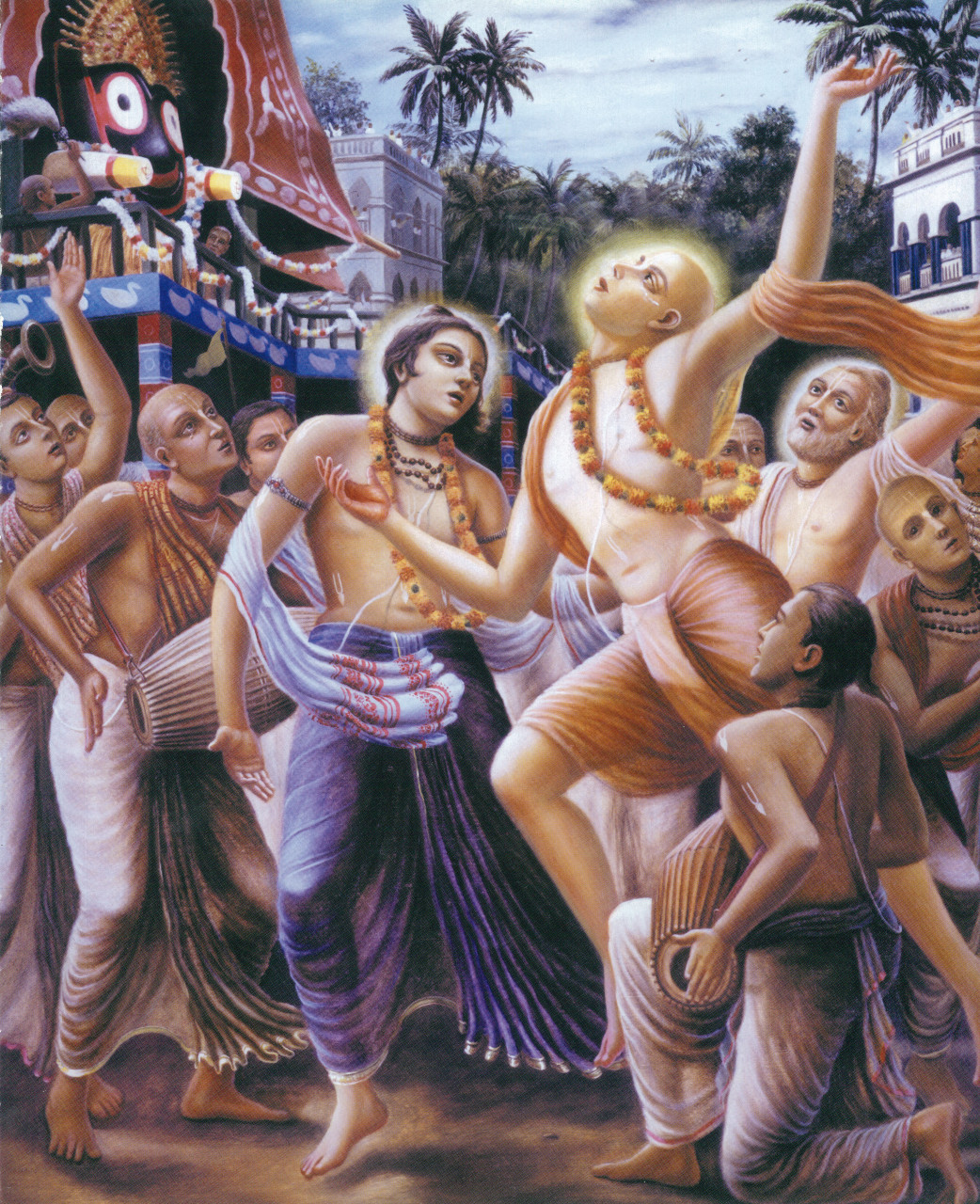 engaged Himself with deep attention in tasting Himself. Just as everyone is mad to taste sweetness, Kṛṣṇa, sweetness personified, is also mad to taste Himself.
engaged Himself with deep attention in tasting Himself. Just as everyone is mad to taste sweetness, Kṛṣṇa, sweetness personified, is also mad to taste Himself.

The following is an excerpt from Sermons of the Guardian of Devotion Volume II by Śrīla Bhakti Rakṣaka Śrīdhara Mahārāja (Scsmathinternational.com)
Then niṣṭhā – continued attempt for the service and not for otherwise. Then ruci, taste will be created.
Real taste for the truth will be created, that is awakened in our heart. We are safe then but not before that. When spontaneous taste for the truth is awakened within us, we are safe. We can make fair progress from that time. Prior to that we must remain under the guardian. The taste will take me, ‘I have acquired the taste of sweetness, so automatically I shall run towards that which is very sweet.’ Until and unless we find that the Truth is sweet, Kṛṣṇa is sweet, we are not safe in our approach towards Him. So many distractions may take us hither and thither.

The following is an excerpt from a darśana with Śrīla Bhakti Rakṣaka Śrīdhara Mahārāja in India, on September 14, 1983 (Gvssanga.com/ssm-transcripts)
We are always dissatisfied with the environment and want to correct them to suit our purpose. No! Your taste is bad. Everything is all right. Your taste is bad. Just as Rūpa Gosvāmī has given one analogy. For one who is attacked with bile, the sugar candy will taste bitter. When the attack of bile is gone, disappears, then the sugar candy will taste sweet. So bitterness is not in the sugar candy but it is in the tongue. So take that sugar candy, that is the medicine for that bile disease.
So, take the Name, now it is bitter, but you go on taking in a particular process and the Name will cure your bile disease and it will be seen to be tasteful. You will be able to feel, “No, sugar candy is tasteful.” So the wrong is in us, in the tongue, and not in the sugar candy.

The following is an excerpt from the book Amṛtera taraṅgiṇī, The Flow of Nectar by Śrīla Gaura Govinda Svāmī Mahārāja, published by Gopaljiu Publications (Gourgovindaswami.org/book-downloads.com)
Also he has developed taste for chanting Hare Kṛṣṇa because he relishes the mellow emanating from it. That mellow is as sweet as honey. Śyāma-nāme kateka madhu āche go, vadana chāḍite nāhi pāre. “Kateka madhu—what sweetness is there? What sweet honey is there in the name of Śyāma?
O My dear girl companion,” Rādhārāṇī says, “My tongue does not want to leave it.” How is it Ha..Kṛṣ..Ha..Kṛṣ…, yes finished, calo, some other thing now. No Śyāma, no Hare Kṛṣṇa. Because we cannot taste the honey, rather, to us it tastes so bitter “O so many rounds, when will I be finished?” It tastes bitter, no sweetness. We cannot taste it.

The following is an excerpt from the book Mathura Meets Vrindavan, by Śrīla Gaura Govinda Svāmī Mahārāja, published by Gopaljiu Publications
This prema-nāma-saṅkīrtana is such sweet honey. As Rādhārānī told one of Her sakhīs:
na jāni kateka madhu, śyāma-nāme āche go
vadana chāḍite nāhi pāre
“O, sakhī, dear girl companion, what sweet honey is there in the name of Śyāma! Oh, My tongue does not want to leave it!”
How is your chanting? “Hare krizzs hare krizzs krizzs krizzs hare krizzs krzz krzz. Finally, finished! rākho! mālā ko rākhado — Put the beads away!” Does it taste sweet? You are only thinking how to finish. No taste. No loving mellow. All dry! Dry! Dry! Sleeping, dozing. It is such loving sweetness, honey. If someone can taste it, how can he give up mālā [chanting]? He cannot! Na jāni kateka madhu, śyāma-nāme āche go vadana chāḍite nāhi pāre — “Ah! Such sweet, transcendental, nectarean honey is there in the name of Śyāma that My tongue doesn’t want to leave it.” This is the sneha stage.
Sneha is of two types, ghṛta-sneha, and madhu-sneha — ghee-type and honey-type. Madhu-sneha is superior to ghṛta-sneha. Ghee melts, whereas madhu, honey, becomes more condensed. Candrāvalī’s sneha is ghṛta, ghee-type, and Rādhārānī’s sneha is madhu, honey-type. Thus there is a difference between Candrāvalī and Rādhārānī’s sneha. Kṛṣṇa doesn’t get as much pleasure when He unites with Candrāvalī. He always remembers Rādhārānī because of Her madhu-sneha.

An excerpt from a lecture delivered by Śrīla Bhaktivedānta Nārāyaṇa Mahārāja in Australia, on February 1, 2000 (Purebhakti.com)
He is also known as Madhudvīṣa; and what is He doing as Madhudvīṣa? He is always drinking madhu, the honey of the association of the gopīs, sakhās, and others. If you are serving and associating with a bhakta of this Madhudvīṣa, Kṛṣṇa, who is cow herding and playing in the groves of Govardhana, then rati-rāso bhavet tīvraḥ (one develops transcendental ecstasy in service).

The following is an excerpt from a class on Śrī Caitanya-caritāmṛta by Śrīla Bhaktivedānta Nārāyaṇa Mahārāja in Alachua, Florida, on May 24, 2001 (Purebhakti.com)
Śrīla Kṛṣṇa dāsa Kavirāja Gosvāmī has explained four reasons, and the last two reasons are the most important and prominent. The first of these two internal reasons was to give rāga-mārga-bhakti, the path by which one can attain the service of the gopīs. Caitanya Mahāprabhu mercifully came to give us this path, rāga-mārga-vartma, 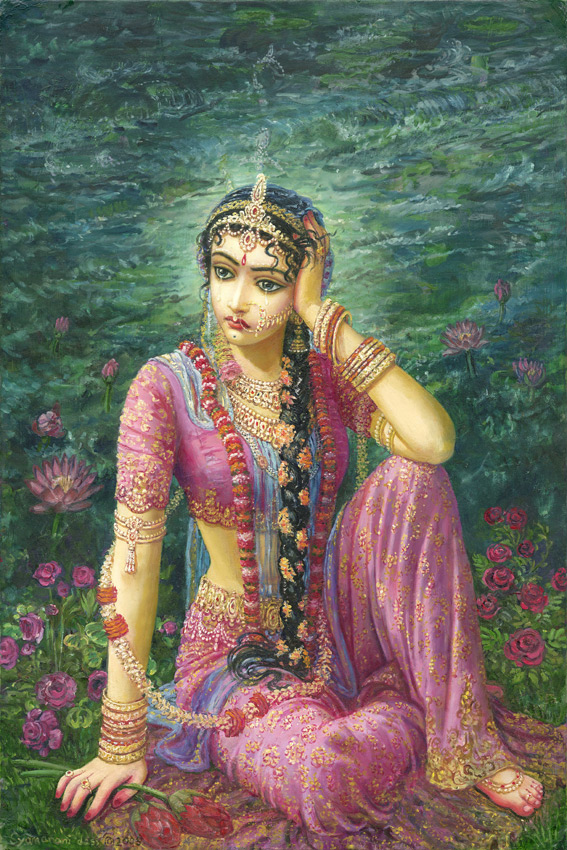 which is the way or process by which we can attain rāga. What is rāga? In the gradual development of the stages of prema there are sneha, māna, praṇaya, and then rāga. This rāga is transcendental and exists only in Goloka Vṛndāvana. There it is found only in the gopīs, mostly in the group of Śrīmatī Rādhikā, and anywhere else you can have only some part of it. This mood in full is especially in Rādhikā, and it cannot be attained by anyone else.
which is the way or process by which we can attain rāga. What is rāga? In the gradual development of the stages of prema there are sneha, māna, praṇaya, and then rāga. This rāga is transcendental and exists only in Goloka Vṛndāvana. There it is found only in the gopīs, mostly in the group of Śrīmatī Rādhikā, and anywhere else you can have only some part of it. This mood in full is especially in Rādhikā, and it cannot be attained by anyone else.
This mood can be realized by Kṛṣṇa, and He can taste and enjoy it, but it is not a thing that can be given to others. We can only know how to attain that high class of rāga in Vraja that is available to the jīvas. The process can be given in this world, but that rāga can never be attained here. We can only attain up to rati here, and after rati there is no practice as there is in this world. You can attain up to rati, that is sthāyī-rati (love and affection in one of the five primary or permanent emotions or relationships) and all ratis (such as affection in one of the seven secondary rasas). You cannot actually have real rati (love and affection in prema-bhakti) here, but you can realize something of it (in bhāva-bhakti) in this world. From the third and fourth chapters it is clear that the highest goal of any devotee, especially one in the line of Śrī Caitanya Mahāprabhu and Rūpa Gosvāmī, is to serve the gopīs, especially Rādhikā, and to attain that gopī mood.

The following is an excerpt from Follow the Angels, The Path of Dedication by Śrīla Bhakti Rakṣaka Śrīdhara Mahārāja (Rupanugabhajanashram.com)
(yadi) gaurāṅga nahito, tabe ki hoito,
kemone dharito de?
rādhāra mahimā, prema-rasa-sīmā,
jagate jānāto ke
“If Mahāprabhu had not appeared then how could we sustain our lives? How could we live? What type of ecstatic rasa has He imbibed that we have been able to have a little taste of? Without this our lives would have been impossible. Prema-rasa-sīmā jagate jānāta ke. Who else could take us to the acme of realisation of the position of Śrīmatī Rādhārāṇī? She holds the highest position. She is the greatest victim of the consuming capacity of Śrī Kṛṣṇa. She stands as the greatest sacrifice before Kṛṣṇa’s infinite consuming power. Rasa-rāja-mahābhāva dui eka rūpa – the rasa is there, and She is the drawer of that rasa from the storehouse. She has such a negative capacity that She can draw out the rasa to the highest degree both in quality and quantity.

The following is an excerpt from the book Bound by Love by Śrīla Gaura Govinda Svāmī Mahārāja, published by Tattva Vicara Publications (Tvpbooks.com)
Śrīla Gaura Govinda Svāmī Mahārāja: No? Then blind yourself. Why do you possess eyes if you cannot see Kṛṣṇa? Māthe tāra paḍuka vajra, let a thunderbolt fall on your head. It is better to be smashed. Why do you survive if you cannot see Kṛṣṇa’s beautiful form? Are you surviving to see ugly māyā? See the beautiful form of Kṛṣṇa! Kṛṣṇa wants, “Bind Me! Bind Me! Bind Me!” That is the wonderful nature of Kṛṣṇa. He is bhakta-vatsala, His devotee is very dear to Him. He wants to be bound up with the rope of love of that devotee. Yes. Kṛṣṇa is a greedy person. What sort of greed has He developed?
Devotee: He is greedy for the love of His devotees, for their love.
Śrīla Gaura Govinda Svāmī Mahārāja: Greedy for that prema-rasa, the mellow of love of the devotee. We are greedy for what? We are greedy for the . . .
Devotee: Lust of the material world, kāma, sense enjoyment.
Śrīla Gaura Govinda Svāmī Mahārāja: Oh yes, you are. [Laughter] But Vaiṣṇavas, sādhus, such premī-bhaktas, they are greedy for the nectarean mellow emanating from the lotus feet of Kṛṣṇa. And Kṛṣṇa is greedy for what? He is greedy for that prema-rasa in the heart of the devotee, premī-bhakta. This is the wonderful nature of Kṛṣṇa and it is inconceivable, acintya. You cannot conceive of it with your tiny material mind, your tiny brain. How can you conceive of it? It is inconceivable. Kṛṣṇa does not become bound up by only one premī-bhakta. No, He is simultaneously bound up by many, many premī-bhaktas. It is inconceivable. Simultaneously He becomes bound up in the heart of so many premī-bhaktas with the rope of love because He is greedy, prema-rasa lolupa. He is greedy for that rasa, mellow, loving mellow in the heart of His premī-bhakta. He wants to be bound up. That is His nature.

The following is an excerpt from a lecture on the book Bhajana-rahasya delivered by Śrīla Bhaktivedānta Nārāyaṇa Mahārāja in Badger, California, on June 4, 2002 (Purebhakti.com)
śrī-gaura-karuṇā-śakti-vigrahāya namo ’stu te
“Again and again I offer obeisances unto Śrīla Sarasvatī Ṭhākura, who is the mercy incarnate of Śrī Gauranga Mahāprabhu, who descended upon the earth to bestow ujjvala-mādhurya-rasa (the highest most radiant conjugal mellow), full conjugal prema, and who is the embodiment of the line of śrī rūpanuga-bhakti.”
Madhuryojjvala-prema is unnatojjvala-rasa, and Śrīla Bhaktisiddhānta Sarasvatī Ṭhākura was expert at tasting and giving this. He is a very near and dear maidservant of Śrīmatī Rādhikā. He descended only to give this prema to sprinkle mercy. He wanted us to realize this prema.

An excerpt from a lecture delivered by Śrīla Bhaktivedānta Nārāyaṇa Mahārāja in Murwillumbah, Australia, on December 3, 2002 (Purebhakti.com)
Only by the combined actions of the book bhāgavata (scripture) and the pure devotee bhāgavata do the mellows of bhakti-rasa enter someone’s heart.

The following is an excerpt from the book Bhakti-naipuṇya, The Last Limit of Bhakti by Śrīla Gaura Govinda Svāmī Mahārāja, published by Gopaljiu Publications (Gourgovindaswami.org/book-downloads.com)
Śrīmad Bhāgavatam is not a mere book, it is as good as Kṛṣṇa. And as Kṛṣṇa is the Supreme Lord, Bhāgavatam is also the Supreme Lord. As we take shelter of Kṛṣṇa, similarly we take shelter of Śrīmad-Bhāgavatam.
In every verse, in every word, even in every letter many, many meanings are there. If you want to explain one verse from the Śrīmad-Bhāgavatam it will take days and days together, what to speak of only one or two hours.
nigama-kalpa-taror galitaṁ phalaṁ
śuka-mukhād amṛta-drava-saṁyutam
pibata bhāgavataṁ rasam ālayaṁ
muhur aho rasikā bhuvi bhāvukāḥ
(Śrīmad-Bhāgavatam 1.1.3)
What is Bhāgavatam? It is nigama-kalpa-taror galitaṁ phala, the most ripened, sweetest, nectarean fruit of the Vedic tree. This fruit, Śrīmad-Bhāgavatam, śuka-mukhād-amṛta, has come out from the lips of Śukadeva Gosvāmī. ‘Śuka’ literary means ‘parrot’ and generally a parrot puts its beak into a very sweet and ripe fruit. After the fruit has been touched by the parrot it becomes much sweeter. So similarly this Śrīmad–Bhāgavatam which is the most ripened, sweetest, nectarean, juicy fruit of the Vedic tree, has become much sweeter after it has come out from the lips of Śukadeva Gosvāmī.
Those who have developed a taste for this nectarean juice, for the mellow coming out from Śrīmad-Bhāgavatam, to such rasikā-bhaktas, we say muhur aho rasikā bhuvi bhāvukāḥ, we call them again and again, with a microphone, “Come, come, come! “Again and again we call, “Taste this nectar! Taste this nectar! It is not available anywhere else.” It is not like the liquor shop. But you are going to the liquor shop. “Twenty-four hours open. Cold wine, come and drink, dance and dine.” People are rushing there, giving money. Only mad fellows are rushing there, to eat stool.
No money is required, not even a dollar. We are giving this nectar free of cost. “Come, come and drink it. Drink, dance and dine with us!” We are advertising, putting up a big signboard. But who is coming? How many are coming? Who has developed taste for it? Most have developed taste for liquor, taste for stool. No taste for nectar, no taste for nectar. Most unfortunate. Even if you offer them good fortune, still they won’t accept it. Most unfortunate wretches. We offer you very good fortune, but not accepting it you are a most unfortunate wretch. A very sorry state of affairs.

Excerpt from Kṛṣṇa – The Lord of Sweetness, First Edition by Śrīla Bhaktivedānta Nārāyaṇa Mahārāja (Purebhakti.com)
With great honour, Parīkṣit Mahārāja was greedy to hear the sweet pastimes of Kṛṣṇa. As Śukadeva Gosvāmī 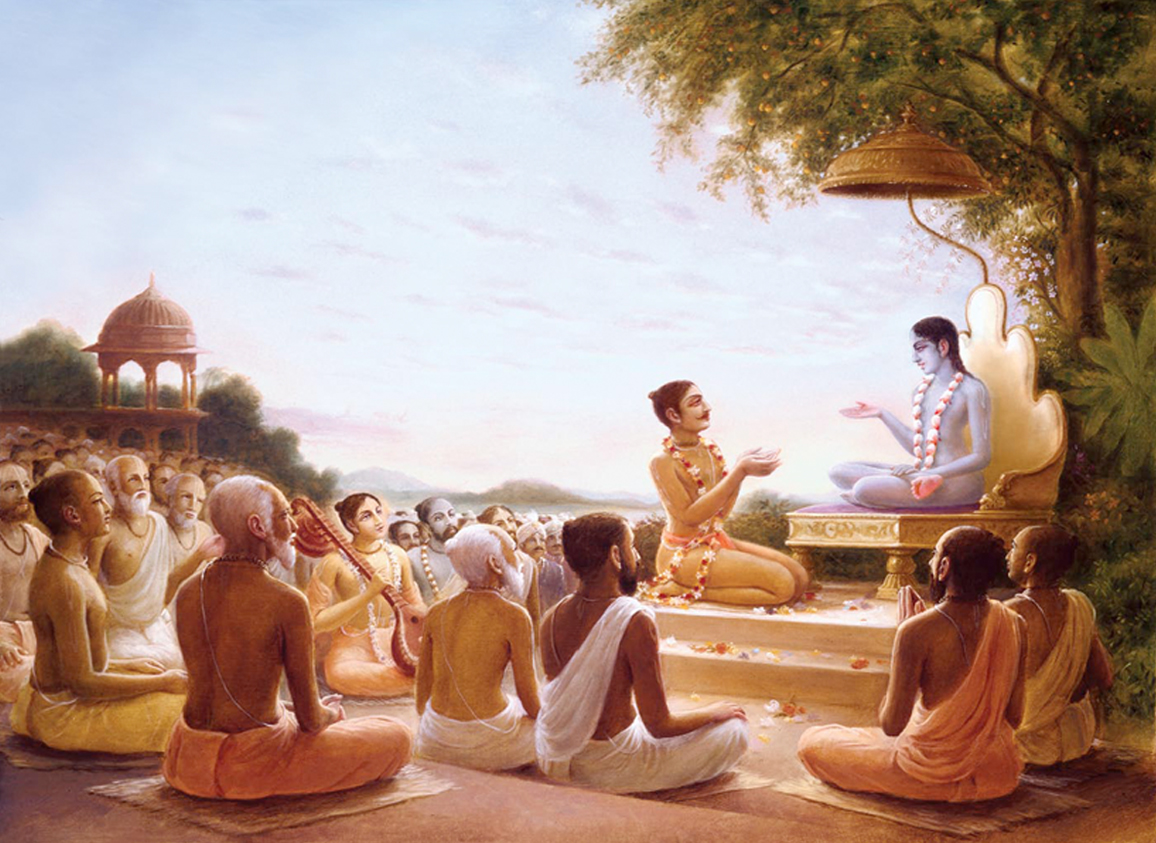 observed the moods of Parīkṣit Mahārāja, he became so happy that from his heart, he automatically spoke narrations about the Supreme Lord, hari-kathā.
observed the moods of Parīkṣit Mahārāja, he became so happy that from his heart, he automatically spoke narrations about the Supreme Lord, hari-kathā.
Śrīmad-Bhāgavatam describes how those who are really devotees have spontaneous love and affection for Kṛṣṇa. If they see a qualified devotee or disciple, an endless stream of bhakti-rasa (the mellow of transcendental devotion) automatically flows from their heart, in the form of their narrations of Kṛṣṇa’s sweet pastimes. Those who are fortunate bathe in that bhakti-rasa, and their lives become successful. They forever forget their lust for eating, drinking, and making merry, and all their fears and anarthas (tendencies unfavourable for spiritual life) will go far away. Offences will also go, and they will soon have pure prema-bhakti for the lotus feet of Kṛṣṇa.
[While narrating Śrīmad-Bhāgavatam,] Śukadeva Gosvāmī asked Parīkṣit Mahārāja, “Do you want to take water?”
“No, Gurudeva. I do not want to take. I am drinking the ocean of rasa flowing from your mouth. I do not need anything else. Go on speaking the sweet pastimes of Kṛṣṇa.”
Anyone who hears these sweet pastimes of Kṛṣṇa will soon have pure love (prema-bhakti) for Him. This is certain. Their anarthas will go away and they will have nothing to worry about – neither death, suffering, nor sorrow.

The following is an excerpt from a lecture on The Beauty of Śrīmatī Rādhikā delivered by Śrīla Bhaktivedānta Nārāyaṇa Mahārāja in Caracas, Venezuela, on April 29, 1999 (Purebhakti.com)
śrī-rādhāyāḥ praṇaya-mahimā kīdṛśo vānayaivā-
svādyo yenādbhuta-madhurīmā kīdṛśo vā madīyaḥ
saukhyaṁ cāsyā mad-anubhāvataḥ kīdṛśaṁ veti lobhāt
tad-bhāvāḍhyaḥ samajani śacī-garbha-sindhau harīnduḥ
[“Desiring to understand the glory of Rādhārāṇī’s love, the wonderful qualities in Him that She alone relishes through Her love, and the happiness She feels when She realizes the sweetness of His love, the Supreme Lord Hari, richly endowed with Her emotions, appeared from the womb of Śrīmatī Śacī-devī, as the moon appeared from the ocean.”]
‘Rādhāyāḥ praṇaya-mahimā kīdṛśo –[the greatness of the love of Śrīmatī Rādhikā],’ and other two [desires are] ‘rādhāyāḥ praṇaya-mahimā kīdṛśo vānayaivā-svādyo yenādbhuta-madhurīmā.’ Venu-madhurī, rūpa-madhurī, līlā-madhurī, guṇa-madhurī. Venu, rūpa, guna, līlā, these four madhurīs, and especially the mood of Śrīmatī Rādhikā He wanted. So that Rādhikā, how She tastes all these things of Mine, My venu, rūpa and all others. And what kind of happiness She feels, I cannot understand.

The following is an excerpt from Their Lasting Relation, A Historical Account by Śrīla Bhaktivedānta Nārāyaṇa Mahārāja (Purebhakti.com)
Unnatojjvala-rasa is of two kinds: the mood of Śrīmatī Rādhikā and gopīs like Lalitā, Viśākhā, Citra, etc., and also the mood of the pālyadāsīs, the maidservants of Śrīmatī Rādhikā. Her pālyadāsīs do not want to serve Kṛṣṇa if He is without Rādhikā. If Kṛṣṇa, alone, is calling them, they will not go to Him; and they do not want to personally taste Him in any way. Śrī Caitanya Mahāprabhu has come to distribute the mood of these maidservants, like Rūpa Mañjarī and Lavanga Mañjarī, in their service to Śrīmatī Rādhikā and Kṛṣṇa.
Śrīmatī Rādhika’s mood cannot be given; it is Hers exclusively. As Śrī Caitanya Mahāprabhu, Kṛṣṇa fully tasted Her three moods:
śrī-rādhāyāḥ praṇaya-mahimā kīdṛśo vānayaivā-
svādyo yenādbhuta-madhurimā kīdṛśo vā madīyaḥ
saukhyaṁ cāsyā mad-anubhāvataḥ kīdṛśaṁ veti lobhāt
tad-bhāvāḍhyaḥ samajani śacī-garbha-sindhau harīnduḥ
Desiring to understand the glory of Rādhārāṇī’s love, the wonderful qualities in Him that She alone relishes through Her love, and the happiness She feels when She realizes the sweetness of His love, the Supreme Lord Hari, richly endowed with Her emotions, appeared from the womb of Śrīmatī Śacī-devī, as the moon appeared from the ocean. [Śrī Caitanya-caritāmṛta (Ādi-līlā 1.6)]
The pleasure that Śrīmatī Rādhika experiences in serving and seeing Kṛṣṇa cannot be given to anyone, but the mood of the maidservant gopīs can be given. Śrī Caitanya Mahāprabhu has therefore come only to give this. Prior to Śrī Caitanya Mahāprabhu’s appearance, Śrī Rāmānujācārya, Śrī Madhvācārya and so many other Vaiṣṇava ācāryas had already appeared. Incarnations like Lord Rāma and Lord Nṛsiṁha had also descended. All of Them gave a very special contribution to the world, but none of them gave this prema, called bhakti-rasa, which Śrī Caitanya Mahāprabhu gave through Śrīla-Rūpa Gosvāmī.
śrī-caitanya-mano-‘bhīṣṭaṁ
sthāpitaṁ yena bhū-tale
svayaṁ rūpaḥ kadā mahyaṁ
dadāti sva-padāntikam
When will Śrīla Rūpa Gosvāmī Prabhupāda, who has established within this material world the mission to fulfil the desire of Lord Caitanya, give me shelter under his lotus feet?
All the ācāryas in the Gauḍīya sampradāya – beginning from Mādhavendra Purīpāda and Īśvara Purīpāda, down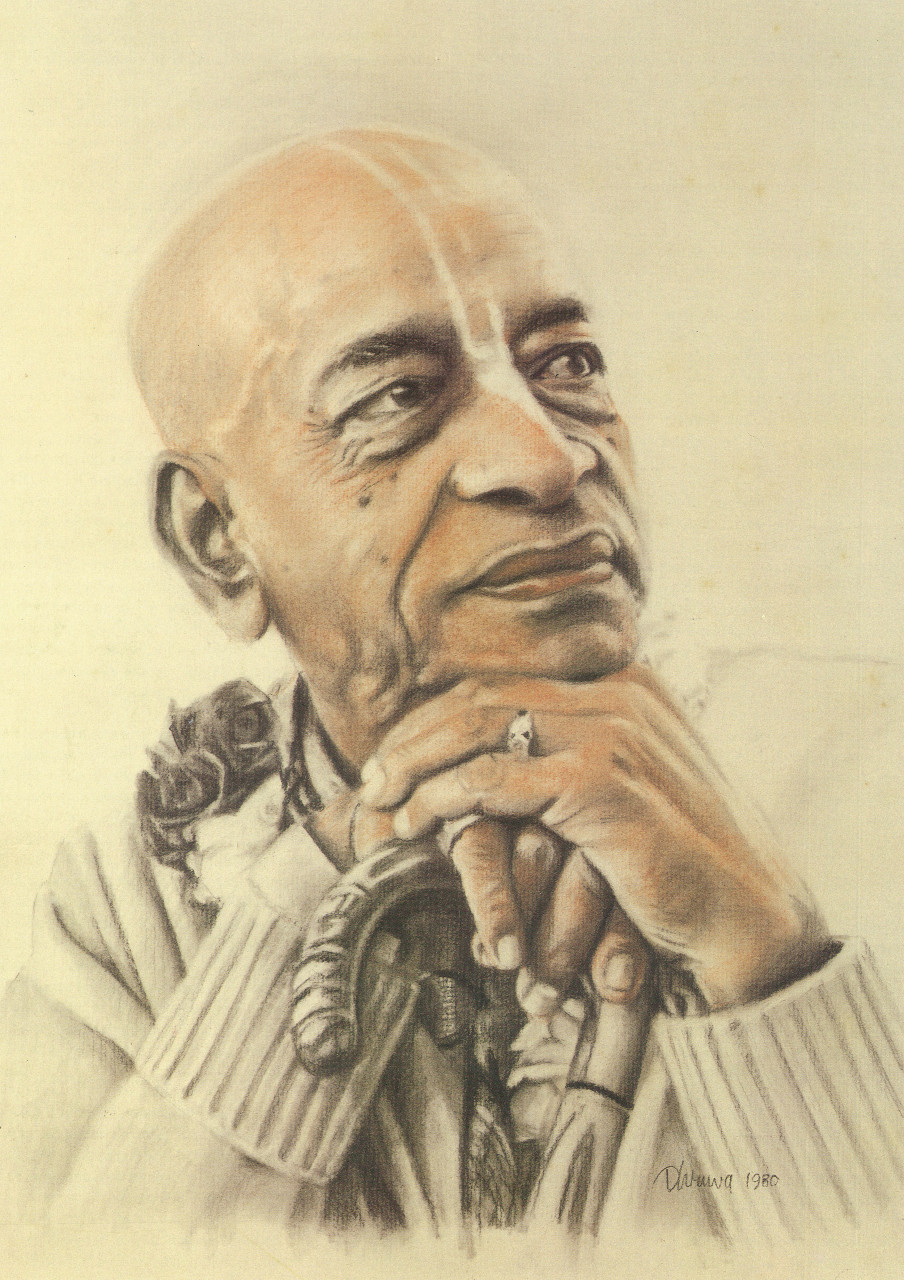 to Śrīla Svarūpa Dāmodara, and from them down to Śrīla Bhaktisiddhānta Sarasvatī Ṭhākura, Śrīla Bhakti Prajñāna Keśava Gosvāmī Mahārāja and Śrīla Bhaktivedānta Svāmī Mahārāja – have not come only to establish vaidhī-bhakti. Rather, they have preached about Śrī Caitanya Mahāprabhu’s descending to distribute that prema, that vraja-bhakti, vraja-rasa. If they were preaching only vaidhī-bhakti, they would have been representing the Śrī-sampradāya, Madva-sampradāya, Viṣṇusvāmī-sampradāya, Nimbāditya, or any other sampradāya.
to Śrīla Svarūpa Dāmodara, and from them down to Śrīla Bhaktisiddhānta Sarasvatī Ṭhākura, Śrīla Bhakti Prajñāna Keśava Gosvāmī Mahārāja and Śrīla Bhaktivedānta Svāmī Mahārāja – have not come only to establish vaidhī-bhakti. Rather, they have preached about Śrī Caitanya Mahāprabhu’s descending to distribute that prema, that vraja-bhakti, vraja-rasa. If they were preaching only vaidhī-bhakti, they would have been representing the Śrī-sampradāya, Madva-sampradāya, Viṣṇusvāmī-sampradāya, Nimbāditya, or any other sampradāya.
Śrīman Mahāprabhu also established the yuga-dharma through nāma-saṅkīrtana. He did this through the medium of Mahā-Viṣṇu, Nārāyaṇa, Nṛsiṁhadeva, and the other avatāras, who were all contained within Himself – within His own body. Because all the avatāras were within Him, no other incarnation was required to perform the function of establishing the yuga-dharma and giving mercy to Jagāi and Mādhāi. Śrī Caitanya Mahāprabhu did all this Himself.
He fulfilled the wish of Advaita Ācārya that He appear very soon. He preached and gave kṛṣṇa-prema through the chanting of the holy name. He tasted the moods of Śrīmatī Rādhika, and He fulfilled all His other purposes. Among all His purposes however, two were prominent, as described in Śrī Caitanya-caritāmṛta – to give kṛṣṇa-prema and to taste the moods of Śrīmatī Rādhika.
prema-rasa-niryāsa karite āsvādana
rāga-mārga bhakti loke karite pracāraṇa
rasika-śekhara kṛṣṇa parama-karuṇa
ei dui hetu haite icchāra udgama
The Lord’s desire to appear was born from two reasons: the Lord wanted to taste the sweet essence of the mellows of love of God, and He wanted to propagate devotional service in the world on the platform of spontaneous attraction. Thus He is known as supremely jubilant and as the most merciful of all. [Śrī Caitanya-caritāmṛta (Ādi-līlā 4.15–16)]
Kṛṣṇa is rasika-śekhara. Do you know the meaning of rasika-śekhara ? He is the taster, the enjoyer, of all rasas. He is the ocean of prema-rasa. Lord Rāma has some rasa, but He is not an unlimited ocean of rasa. Lord Nṛsiṁhadeva has one rasa. When He appeared, He was raudra, angry, and the entire world was fearful. But Kṛṣṇa is rasika-śekhara, an endless ocean of rasa, and there is no limit to the depth of that ocean.
In a general sense, all scriptures glorify Kṛṣṇa in this way. However, according to Gauḍīya siddhānta (the disciplic succession coming from Lord Caitanya), Śrīmatī Rādhikā is a greater ocean of rasa than Kṛṣṇa. If He were to dive into that ocean, He Himself would not be able to fathom its depth.
Actually, the Śrīmad-Bhāgavatam was only presented for the purpose of glorifying Śrīmatī Rādhikā and the gopīs. So many Purāṇas and other literatures were previously written to glorify Kṛṣṇa. In Śrīmad-Bhāgavatam, glorifying Kṛṣṇa is not the supreme objective; rather it is to glorify the prema of the vraja-bhaktas.
Kṛṣṇa is not the object of life. Kṛṣṇa-prema is our object. Kaṁsa also had darśana of Kṛṣṇa, but he had no prema and therefore he could not satisfy or serve Kṛṣṇa. In Śrī Caitanya-caritāmṛta it has been revealed that kṛṣṇa-prema is the supreme goal of all jīvas, and that rādhā-prema is the supermost prema. Kṛṣṇa, as Śrī Caitanya Mahāprabhu, came only to taste that prema, and to give the moods of Rūpa Mañjarī, Rati Mañjarī and all the pālyadāsīs of Śrīmatī Rādhikā.
The jīva cannot possess the mood of Śrīmatī Rādhikā. He cannot digest more than the mood of pālyadāsīs – but that mood is the highest position. Śrīla Rūpa Gosvāmī, Śrīla Raghunātha dāsa Gosvāmī, and all the Gosvāmīs were absorbed in this internal mood of a servant of Śrīmatī Rādhikā.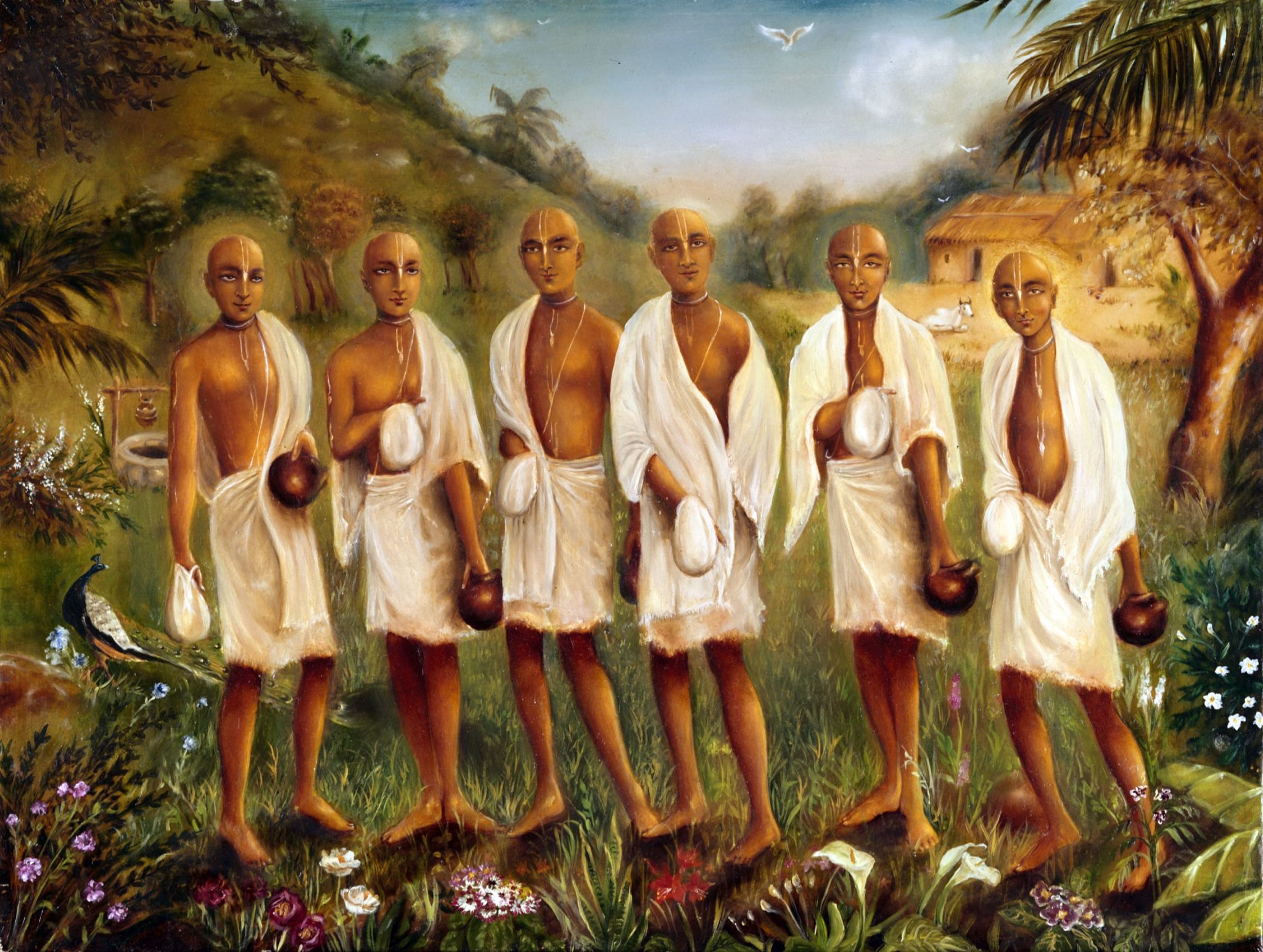
Śrīla Rūpa Gosvāmī, Śrīla Sanātana Gosvāmī, and all the Six Gosvāmīs chanted and rolled on the ground in Vṛndāvana – sometimes in Rādhā-kuṇḍa or Śyāma-kuṇḍa, sometimes in Vṛndāvana or Bhāṇḍīravana, and sometimes in Nandagaon or Varṣāṇā. They were weeping profusely and calling out everywhere, “O Rādhikā, where are you?” With very deep feelings, they daily chanted no less than one lākha of harināma. They were absorbed in thinking of Kṛṣṇa’s names and pastimes, and they were offering hundreds of thousands of daṇḍavat praṇāmas. They prayed: “O Rādhā! O Rādhā! O Kṛṣṇa! Karuṇāsindhu! Dīna-bandhu! Jagat-pate!”
All of our ācāryas are rūpānuga Vaiṣṇavas. They have not come to preach vaidhī-bhakti. They did so, however, in order to first cut the jungles of philosophical misconceptions, then to establish the yuga-dharma, and then to give these deeper conceptions. Without having done this preliminary work, no one would be able to understand.

The following is an excerpt from an article by Śrīla Bhaktivedānta Nārāyaṇa Mahārāja, published in Rays of The Harmonist, No. 17, Kārttika, 2007 (Purebhakti.com)
The fullest expression of true love is seen in Śrīmatī Rādhikā. In comparison, Śrī Kṛṣṇa experiences only a fraction of such love. His love touches mahābhāva, but it cannot go beyond that. No matter how high His love extends, it cannot even reach the same level as Śrī Lalitā’s and Śrī Viśākhā’s love, which touch ruḍa and adhiruḍa, the highest states of mahābhāva. Śrī Kṛṣṇa has no such love. In the higher stages of prema, from anurāga and up, the moods of Śrīmatī Rādhikā are predominant, not the moods of Śrī Kṛṣṇa.
Our Gosvāmīs describe these exalted and complex moods, which are beyond the understanding of the general people. These topics are essential for those who wish to do bhajana but they are not suitable for anyone else.

The following is a transcription of a lecture delivered by Śrīla Bhaktivedānta Nārāyaṇa Mahārāja in Mathurā, India, on April 21, 2000
All those who are chanting the gopī–jana–vallabha mantra, whether male or female, want to have that special mood for Kṛṣṇa. To achieve this they will have to understand the word ‘pirīti‘ (this is the Bengali pronunciation of prīti), and try to enter the same mood as the gopīs and Śrīmatī Rādhikā. Actually, the full expression of this prema is only seen in Śrīmatī Rādhikā. It is not manifested in anyone else. After the level of anurāga, all the descriptions given by the Gosvāmīs are especially for Śrīmatī Rādhikā. Even Kṛṣṇa can only come up to the point of mahābhāva, not above that. He cannot even reach the moods of Lalitā and Viśākhā, what to speak of the moods of Śrīmatī Rādhikā. She alone has the very special mood of mādana-mādanākhya-mahābhāva. No one else has that mood which Śrī Kṛṣṇa Himself wants to understand.
We must understand that this transcendental love, the higher stages of which are known as modana and madana, and which are exhibited only in Śrīmatī Rādhikā, is completely transcendental. The smallest fraction, the smallest degree, of this love, which is called śraddhā, faith, is transcendental as well. From the very beginning, if śraddhā is pāramārthika, transcendental, then it is completely spiritual. It is not mundane.

The following is an excerpt from a conversation between Śrīla Bhaktivedānta Nārāyaṇa Mahārāja and Tamāla Kṛṣṇa Mahārāja and his associates, in Mathurā, India, on October 21, 1992 (Purebhakti.com)
A similar desire has been expressed here. The author, Śrī Bilvamaṅgala Ṭhākura, is a bhāvuka bhakta – not siddha (in prema-bhakti), but bhāvaka (in bhāva-bhakti), and also rasika (he understands the mellows of the five rasas). He has received something in his heart from rāgātmika-jana (the associates of Kṛṣṇa in Vraja), and therefore he is bhāvuka. He is kṛṣṇa-pakṣa and kṛṣṇa-virahita, meaning that he is inclined towards Kṛṣṇa, and thus he expresses separation from Kṛṣṇa, not Rādhikā. He has written all the ślokas in Kṛṣṇa-karṇāmṛta with some connection to Śrīmatī Rādhikā, however, because he also has some taste for Her service. Kṛṣṇa does not want to listen to any prayers that are devoid of a connection with Śrīmatī Rādhikā and the gopīs. If Kṛṣṇa hears, “I am being served by Rādhikā” or “I am serving Rādhikā,” He becomes very pleased. Therefore, from the first to the last śloka in Kṛṣṇa-karṇāmṛta, there is some connection with Rādhikā. In the first verse he has used the word jayaśrīh:
cintāmaṇir jayati somagirir gurur me
śikṣā-guruś ca bhagavān śikhi-piṣcha-mauliḥ
yat-pāda-kalpataru-pallava-śekhareṣu
līlā-svayaṁvara-rasaṁ labhate jayaśrīḥ
He writes that Kṛṣṇa is so beautiful. His mouth, eyes, nose, hands, and all the parts of His transcendental form are beautiful. Although Kṛṣṇa’s feet are not as beautiful as His face, Bilvamaṅgala Ṭhākura has only described the beauty of His feet in the beginning. He writes: “His feet are like lotuses and His toes are like lotus petals, and Rādhikā offers ārati to the rays emanating from the tips of His toenails.
We Gauḍīya Vaiṣṇavas do not want to hear these things. For those with the same mood as Bilvamaṅgala Ṭhākura, this śloka is very beautiful, but we would be more interested and pleased if he had written that Kṛṣṇa offers ārati to Śrīmatī Rādhikā. Instead, he writes that She is offering ārati, and She is so pleased – as a girl is pleased when choosing Her husband and giving Him a garland when They first meet.

The following is an excerpt from a lecture on Real Dīkṣā, Sannyāsa and Samādhi delivered by Śrīla Bhaktivedānta Nārāyaṇa Mahārāja in Alachua, Florida, on June 17, 1999 (Purebhakti.com)
The mellow of this. But not for [distributing] this. What?
anarpita-carīṁ cirāt karuṇayāvatīrṇaḥ kalau
samarpayitum unnatojjvala-rasāṁ sva-bhakti-śriyam
(Śrī Caitanya-caritāmṛta Ādi-līlā 1.4)
‘Śrīyam.’ What śrī? This beauty of the mood of Śrīmatī Rādhikā. What is that? The mood of Śrī Rūpa-mañjarī, Rati-mañjarī, the mood of Rūpa Gosvāmī in his siddha-deha, in his perfected spiritual body. How she’s serving, how Rūpa Gosvāmī’s serving in his siddha-deha to Rādhā and Kṛṣṇa conjugal, especially bending towards Śrīmatī Rādhikā. Kṛṣṇa may be happy or may not be happy, but Rādhikā should be happy. This is the mood of Rūpa Gosvāmī. He will clap if Śrīmatī Rādhikā will defeat Kṛṣṇa, and Kṛṣṇa will be defeated. They will clap. So this is the mood of Rūpa Gosvāmī. And if Śrīmatī Rādhikā is suffering so much in separation mood, oh, he will feel separation. This is rūpanuga. All rūpanuga are rāgānugā, but all rāgānugā are not rūpanuga.

An excerpt from a glorification given by Śrīla Bhaktivedānta Nārāyaṇa Mahārāja at the 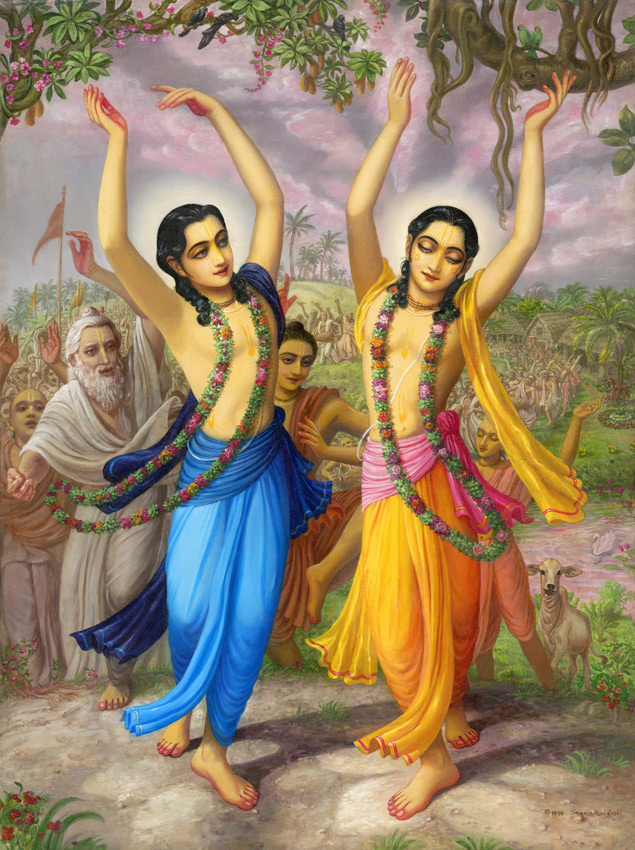 bhajana–kuṭīra of Śrīla Bhakti Hṛdaya Vana Mahārāja’s Madana-mohana Ghera in Vṛndāvana, India on July 7, 2001 (Purebhakti.com)
bhajana–kuṭīra of Śrīla Bhakti Hṛdaya Vana Mahārāja’s Madana-mohana Ghera in Vṛndāvana, India on July 7, 2001 (Purebhakti.com)
Bhakti manifests from Śrī Rādhā, and it is Her various bhāvas that are called bhakti. Rādhikā’s bhāvas, namely modana and madana, cannot be given to the world, and even Kṛṣṇa cannot experience these bhāvas, what to speak of others. For that reason, in order to taste them and to distribute a sprinkle of them upon the world, Kṛṣṇa came with the mood of Śrī Rādhā in the form of Śrī Caitanya Mahāprabhu and gave mañjarī-bhāva. In this unnatojjvala-rasa, Lalitā and Viśākhā have to wait and ask for permission from Śrī Rūpa Mañjarī to enter Rādhikā’s kuñja.

The following is an excerpt from a lecture on the glories of Śrīla Rūpa Gosvāmī delivered by Śrīla Bhaktivedānta Nārāyaṇa Mahārāja in Vṛndāvana, India, on August 19, 2005 (Purebhakti.com)
There are three aspects or sections in prema: the object, the subject and the exchange between them. When anurāga becomes very thick, it comes to such a high stage that all the distinctions between these three diminish. Only the experience of the mellow taste of the relationship remains. This stage is so exalted that Śrīmati Rādhikā forgets that “I am Rādhikā,” and Śrī Kṛṣṇa forgets that “I am Kṛṣṇa.” At this stage, prema, that pure transcendental love, which is “the doer,” becomes prominent, and only the feeling of happiness remains. Who is the object and who is the subject, this understanding is lost in the stage of sva–samvedya–daśā. It is impossible to explain this appropriately; only Śrīmatī Rādhikā, who experiences it, can explain it.
So Śrī Caitanya Mahāprabhu came to this world taking the golden beauty and intrinsic mood of Śrīmatī Rādhikā, only to sprinkle this love and affection to all, and to taste some desires. Not to give. [Not to distribute the three desires of Kṛṣṇa which Mahāprabhu came to taste.] And Caitanya Mahāprabhu very easily gave it [this love and affection] to the whole world through kīrtana, saṅkīrtana.

An excerpt from a lecture delivered by Śrīla Bhaktivedānta Nārāyaṇa Mahārāja in Murwillumbah, Australia, on April 26, 2005 (Purebhakti.com)
Śrī Caitanya Mahāprabhu is Lord Śrī Kṛṣṇa Himself, having taken the mood and complexion of Śrīmatī Rādhikā, and he came to give unnatojjvala-rasam sva-bhakti-śrīyam. He did not come to give unnatojvala-rasa, the mood of Rādhikā, Lalitā or Viśākhā. That mood is reserved for them. Kṛṣṇa came in the form of Caitanya Mahāprabhu, appearing in the womb of Śacī-maiyā, to give the beauty of unnatojvala rasa. What is that beauty? It is mañjarī-bhāva (also known as bhāva-ullāsa-rati).

The following is an excerpt from the book Śrī Kṛṣṇa Janmāṣṭamī by Śrīla Gaura Govinda Svāmī Mahārāja, published by Tattva Vicara Publications (Tvpbooks.com)
You are the eternal servant of the Lord, Kṛṣṇa is your eternal master. Kṛṣṇa therefore descends here for krīḍārtha, to play with His dear devotees, to relish His līlā–rasa, the mellow of transcendental līlā. In addition He also gives you an opportunity to relish these pastimes. Moreover, He also comes here for sādhu-saṁrakṣaṇa, to protect His dear devotees. These are the reasons why Kṛṣṇa comes to this material world.

An excerpt from a lecture delivered by Śrīla Bhaktivedānta Nārāyaṇa Mahārāja in 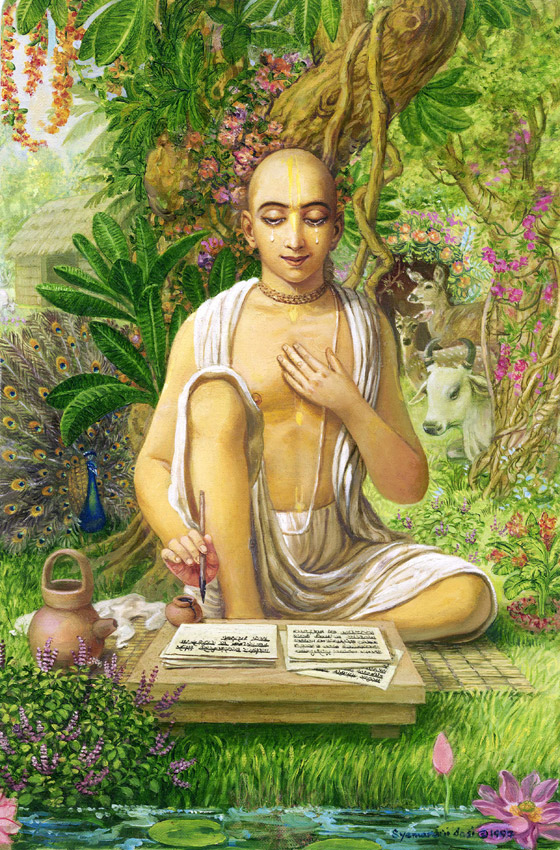 Govardhana, India, on November 25, 2004 (Purebhakti.com)
Govardhana, India, on November 25, 2004 (Purebhakti.com)
Our ācāryas like Śrīla Viśvanātha Cakravartī Ṭhākura and others have described many pastimes like this in order to inspire the mellows of transcendental love of Rādhā and Kṛṣṇa in Vṛndāvana in the hearts of all the living entities of this world. There are not one or two pastimes like this; there are thousands – unlimited – pastimes like this. When we come to Vraja-maṇḍala parikramā, it is essential to hear these pastimes from the lips of a realized Vaiṣṇava, so that the inspiration will come in our bhajana to attain the goal of life – loving service of the lotus feet of Śrīmatī Rādhā and Lord Kṛṣṇa.

The following is an excerpt from the book Lord Balarāma’s Inconceivable Strength by Śrīla Gaura Govinda Svāmī Mahārāja, published by Tattva Vicara Publications (Tvpbooks.com)
Those sādhus are My heart. I am the heart of those sādhus. They do not know anything but Me, I do not know anything but them. All premī-bhaktas, dear devotees relish the bhakti–rasa, the mellow of bhakti, as the mellow emanates from the beauty of Kṛṣṇa, kṛṣṇa-mādhurya.

The following is an excerpt from the book The Asset of the Gauḍīya-Guru-Varga by Śrīla Gaura Govinda Svāmī Mahārāja, published by Tattva Vicara Publications (Tvpbooks.com)
Kṛṣṇa’s vraja-līlā, the eternal līlā that He manifests in Vrajabhūmi, is His antaraṅgā-līlā. Vṛndāvanaṁ parityajya padam ekaṁ na gacchati – Kṛṣṇa never leaves Vṛndāvana. He never goes out of Vṛndāvana, not even one step, padam ekaṁ na gacchati. He is always there. But sometimes His līlā is manifested and sometimes it is unmanifested. So He manifests His vraja-līlā when He is ekādaśa-vatsara, eleven years old. Kṛṣṇa relishes līlā-rasa, or the mellow of such vraja-līlā surrounded by the vrajavāsīs, the residents of Vrajabhūmi, His premī-bhaktas.
There are five rasas: śānta, dāsya, sakhya, vātsalya, and mādhurya. Nanda-nandana Kṛṣṇa, the son of Nanda Mahārāja, manifests His babyhood līlā, His childhood līlā and His boyhood līlā or adolescence, paugaṇḍa-līlā, kaiśora-līlā. That līlā-rasa is relished by the premī-bhaktas who are residents of Vrajabhūmi, vrajavāsīs. They are the Gauḍīya Vaiṣṇava ācāryas. They relish such līlā-rasa, the mellow of that līlā. That is the speciality of the gauḍīya-guru-varga.

The following is an excerpt from Secret Truths of the Bhāgavatam, Śrī Bhāgavata-rahasya, lecture series given in New Vraja (Badger), California, June, 1999, 2nd edition, by Śrīla Bhaktivedānta Nārāyaṇa Mahārāja (Purebhakti.com)
There was yet another reason why Kṛṣṇa did not return to Vṛndāvana. Vasudeva and Devakī knew very well that a person who goes elsewhere to perform a job or duty will return to his original place when his duty is completed. Similarly, if Kṛṣṇa, who came from Vṛndāvana, were to have returned to Vṛndāvana, He would never have gone back to Mathurā and Dvārakā. But if Kṛṣṇa were to say, “I am going to Indraprastha, I am going to Mithilā, I am going here and there,” Vasudeva and Devakī would never object. They would say, “All right, You may go. Return very quickly.” But if Kṛṣṇa had requested permission from Devakī and Vasudeva to quickly go to Vṛndāvana and then return, they would have become very worried and would have wept. They would not have responded at all and would not have given permission. Why not?
Vṛndāvana is rasamayī-bhūmi (the land of eternal loving relationships). Devakī and Vasudeva knew that Kṛṣṇa would not be going there to complete any duty or job, and that if He went, He would have become totally absorbed in rasa (transcendental mellows). Kṛṣṇa is Himself rasa, and all the gopas and gopīs are also rasa. Therefore He would not return. If Kṛṣṇa were to ask, “May I go to Vṛndāvana?” then Devakī and Vasudeva would have begun to weep bitterly. Not only Devakī and Vasudeva would weep, but all of the Mathurāvāsīs would also and feel that they would die that very day. This is why He could not go to Vṛndāvana, even though He sometimes wanted to go.

The following is an excerpt from the book Relishing Śrī Dāmodarāṣṭakam by Śrīla Gaura Govinda Svāmī Mahārāja, published by Tattva Vicara Publications (Tvpbooks.com)
In this pastime there is līlānanda, the Lord relishing the mellow of His sweet līlā, and there is also the bhakta’s experiencing premānanda, getting pleasure from rendering such loving service unto Kṛṣṇa. Two types of ānanda: līlānanda and premānanda. The Lord’s līlānanda and the bhakta’s premānanda, combined together to create apūrva paramānanda — unprecedented, supreme ānanda. The Lord and the devotee, bhagavān and bhakta, both become merged, drowned, in an ocean of ānanda. No one can describe it with language, for it is indescribable. Raso vai saḥ — He is the reservoir of all rasa, mellow. He is rasa himself. He is rasika, He relishes. He is the relisher and He is also to be relished, āsvādya. He gives opportunity to His premī-bhaktas to relish such mellow.
 An excerpt from a darśana with Śrīla Bhaktivedānta Nārāyaṇa Mahārāja in Alachua, Florida, on April 29, 2008, published in Walking with a Saint – Morning Walks and Conversations 2008 (Purebhakti.com)
An excerpt from a darśana with Śrīla Bhaktivedānta Nārāyaṇa Mahārāja in Alachua, Florida, on April 29, 2008, published in Walking with a Saint – Morning Walks and Conversations 2008 (Purebhakti.com)
Śrīpāda Āśrama Mahārāja: Kṛṣṇa is rasika-śekhara, the topmost relisher, and He is raso vai saḥ, the embodiment of rasa. I have heard it said that Rādhārāṇī does not have rasa, but She is Mahābhāva Ṭhākurāṇī. She has bhāva, but Kṛṣṇa does not have bhāva. I am wondering; is this idea okay?
Śrīla Bhaktivedānta Nārāyaṇa Mahārāja: It is correct to say that Kṛṣṇa is the embodiment of rasa; but rasa cannot taste itself. It cannot know how tasteful it is. Rather, one who is drinking that rasa can taste it. Śrīmatī Rādhikā is drinking that nectar.
Śrīpāda Mādhava Mahārāja: Śyāma-rasa.
Śrīla Bhaktivedānta Nārāyaṇa Mahārāja: Therefore She knows the extent of the beauty, taste, and qualities of that rasa. Śrī Kṛṣṇa, who is Rasa Himself, cannot fully taste, tell, or explain about Himself.

An excerpt from a lecture delivered by Śrīla Bhaktivedānta Nārāyaṇa Mahārāja in Odessa, Ukraine, on September 22, 2002 (Purebhakti.com)
Kṛṣṇa is love, and His love is Rādhikā. Without love – without Rādhikā – He cannot exist for even a second. If you want to take darśana of Kṛṣṇa, in a moment you can have darśana of Kṛṣṇa if you will follow Rādhikā and call out to Her, “O Rādhike!” Kṛṣṇa will then come at once.

The following is an excerpt from Loving Search for the Lost Servant by Śrīla Bhakti Rakṣaka Śrīdhara Mahārāja (Bvmlu.org)
Once, the Diwān of Bhāratpur had come on a pilgrimage with his family to the holiest of places, Śrī Rādhā-kuṇḍa, the holy lake of Śrīmatī Rādhārāṇī. He and his family were circumambulating Rādhā-kuṇḍa. They would fall flat on the ground, offering obeisances lying down with their arms outstretched. Every time they bowed down in this way, they would mark the spot where their fingertips touched the earth. Then they would slowly rise, step forward to where that spot had been marked, and again fall flat, offering their obeisances with great respect and adoration. In this way they were circumambulating the entire Rādhā-kuṇḍa. Upon seeing such intense worship, Paramānanda Prabhu, an intimate disciple of our Guru Mahārāja Śrīla Bhaktisiddhānta Sarasvatī Ṭhākura, intimated to Prabhupāda that the Diwān and his family must have great respect for Rādhārāṇī to circumambulate the Rādhā-kuṇḍa in such a fashion.
At that time Prabhupāda said, “Their angle of vision towards Rādhā-kuṇḍa and Rādhārāṇī is different from ours. They recognise and revere Kṛṣṇa. And because Rādhārāṇī is Kṛṣṇa’s favourite, they also have some reverence for Rādhā-kuṇḍa. But our vision is just the opposite. Our concern is with Rādhārāṇī. And only because She wants Kṛṣṇa do we have any connection with Him.”
And so, the Gauḍīya Vaiṣṇavas know only Rādhārāṇī. They are concerned only with Her, and Her duties, Her necessities. They are ready to serve Her in all respects, and cannot contemplate any service without Her. That is the highest achievement of the Gauḍīya Vaiṣṇavas, that is the special feature of Mahāprabhu’s party, and that was announced by Raghunātha Dāsa Gosvāmī in his Vilāpa-kusumāñjali (102):
āśā-bharair amṛta-sindhu-mayaiḥ kathañcit
kālo mayātigamitaḥ kila sāmprataṁ hi
tvaṁ cet kṛpāṁ mayi vidhāsyasi naiva kiṁ me
prāṇair vrajena ca varoru bakāriṇāpi
This verse is a direct prayer to Rādhārāṇī. It expresses a particular type of hope which is so sweet and reassuring that it is compared with an unlimited ocean of nectar. He says, “There is a hope which is sustaining me and nurturing my existence. With that hope I am somehow passing my days, dragging my life through these tedious times. That nectarine ocean of hope is attracting me and keeping me alive. But my patience has reached its end. I can’t endure it any longer. I can’t wait any more.”
“At this moment if You do not show Your grace to me, I am finished. I shall lose my prospect forever. I shall have no desire to continue my life. It will all be useless. Without Your grace, I can’t stand to live another moment. And Vṛndāvana, which is even dearer to me than my life itself – I am disgusted with it. It is painful; it is always pinching me. And what to speak of anything else, I am even disgusted with Kṛṣṇa. It is shameful to utter such words, but I can have no love even for Kṛṣṇa unless and until You take me within Your confidential camp of service.” This is the prayer of Raghunātha Dāsa.
When Śrīla Bhaktisiddhānta Sarasvatī Prabhupāda would begin to explain this verse, his figure would become transformed. He would become full of emotion; his face would become like that of a phantom.
In this verse, Raghunātha Dāsa Gosvāmī, taking an extreme risk, says, “O Rādhā, if I do not get Your favour, I don’t want anything. I want You and You alone. To have an independent relationship with anyone else, eliminating You is impossible in my life. You must be first, and then others. Without You, we can never even think of a separate relationship with Kṛṣṇa.”
Bhaktivedānta Svāmī Mahārāja has written that without Rādhārāṇī’s company, Kṛṣṇa is not beautiful. Everything is relative-dependent. A teacher depends on the student, and the student depends on his teacher. Although Kṛṣṇa is the enjoyer, He is completely dependent on the enjoyed, Śrīmatī Rādhārāṇī. The two are correlative; one cannot be separated from the other. As the enjoyed, Rādhārāṇī is also absolutely dependent on Kṛṣṇa, the 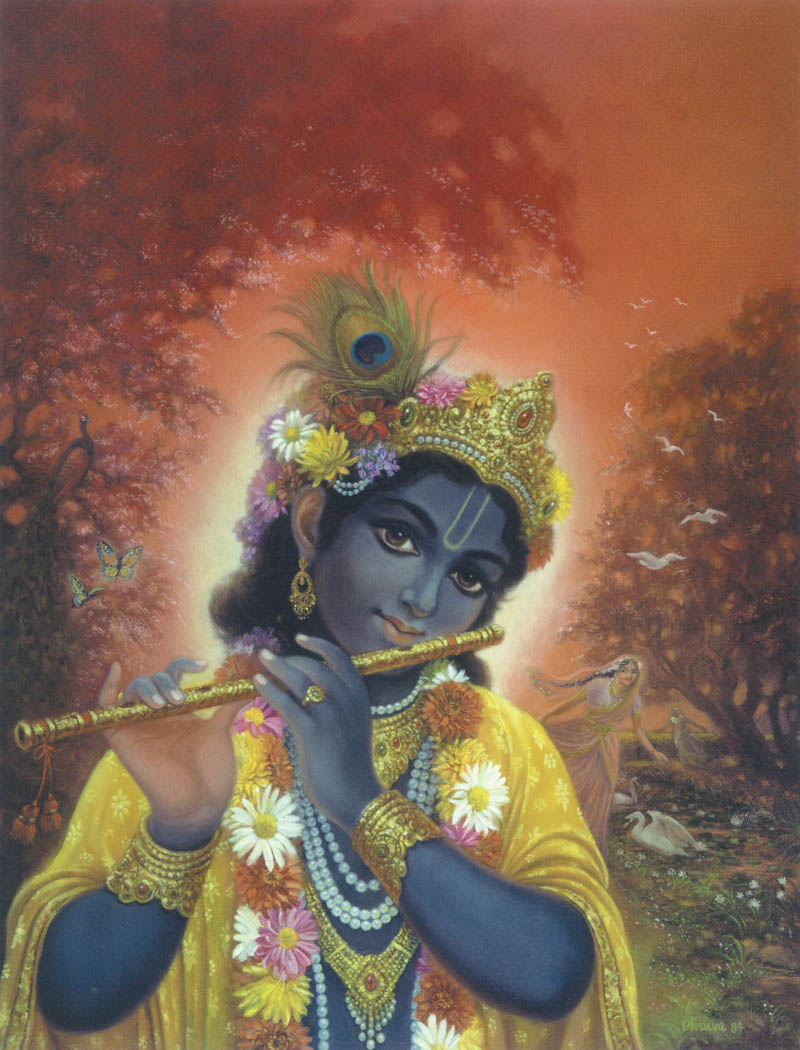 enjoyer.
enjoyer.
Rādhārāṇī says, “My fate is lost forever because I have given Myself, I have sold Myself to many places. When I heard the flute, I dedicated Myself to the song of the flute. When I heard the name Kṛṣṇa, I dedicated Myself to that sound. And when I saw a beautiful picture of Kṛṣṇa, I wholly dedicated Myself to that picture. So in three places I have sold Myself completely, with no possibility of any happiness or peace in My life. If l had dedicated Myself to only one thing, there might have been a possibility of peace, but because I have dedicated Myself in three different places, I am hopeless.
“Seeing the picture of Kṛṣṇa, I couldn’t contain Myself. I couldn’t but give Myself to that beautiful figure, and so I dedicated Myself fully. The name of Kṛṣṇa also purchased Me fully. And the sweet sound from the flute – has also drawn Me to the extreme of dedication. So how can I hope for peace in My life? It is impossible, My friends.” Rādhārāṇī did not know it at that time, but the source of Kṛṣṇa’s flute, His name, and His beauty are one. If She could have seen how all three of these meet together, then it would have been possible for Her to have peace of mind. But it is difficult to understand this principle.
How is it that the sound of Kṛṣṇa’s flute, the sound of His name, and a picture of His form are non-different from Kṛṣṇa Himself? Idealism. In Hegel’s words, ideal realism. The absolute idea is not to be dismissed as an abstract thing; rather, it is the basis of all existence. Reality is there, but it is ideal realism. And the foundation of the reality of Vṛndāvana is given by Nityānanda, Baladeva: nitāiyera karunā habe, vraje rādhā-kṛṣṇa pābe, dhara nitāi-caraṇa du’khāni.
After Bhaktivinoda Ṭhākura describes the position of Rādhārāṇī in his Śaraṇāgati, he says, “I want to serve those who have the service of Rādhārāṇī in their heart. I want to serve the feet-dust of those whose only wealth is the service of Śrī Rādhā. I want to fall before them and take the dust of their holy feet. If you cannot fix your mind in the service of Rādhārāṇī, then all your attempts to serve Kṛṣṇa are useless. If you cannot achieve earnestness in the service of Śrīmatī Rādhārāṇī, then all your labour for Kṛṣṇa has gone to hell.” We cannot conceive of a sun without heat, nor can we conceive of Godhead without His potency. So also, no conception of Kṛṣṇa is possible without Śrīmatī Rādhārāṇī. We can’t know any Mādhava without Rādhā.
She is Kṛṣṇa’s other half, in Śrīla Bhaktisiddhānta’s language, the predominated moiety. Devotional service as a whole is represented by Her, because both the intensity and the comprehensiveness of Her service to Kṛṣṇa are unparalleled. There are so many examples of chaste and pious ladies in the ancient history of the Purāṇas: Śacī, the faithful wife of Indra; Sati, the wife of Lord Śiva; Lakṣmī Devī, the goddess of fortune; Satyabhāmā, Kṛṣṇa’s wife in Dvārakā; Rukmiṇī, the principle queen of Kṛṣṇa in Dvārakā; and even the antagonists of Rādhārāṇī, headed by Candrāvalī. All of them represent different aspects of Rādhārāṇī. They all spring from the main potency which is known as Rādhā.
The name Rādhā comes from the word arādhanīya: One who can serve, who can worship, who can give respect, who really loves Kṛṣṇa, who can render loving service. All of these other ladies who are famous for their chastity and piety are but partial representations of Rādhārāṇī. If we note the scriptures and scrutinize the position of those virtuous ladies, we’ll find that the source of all their chastity and devotion is Śrīmatī Rādhārāṇī. She is the fountainhead of devotion. And so Bhaktivinoda says, “I bow down and take the dust of the holy feet of those who have as their only wealth the service of Rādhārāṇī. I hanker after nothing else.” Whoever knows this and always travels on that path with a sincere heart is most fortunate.
It is the ideal that makes one great, not any material possession. One who has the highest ideal is really wealthy. The highest ideal is the most valuable thing we may possess. And less valuable things must be eliminated if we are to concentrate our efforts and save ourselves from useless endeavours. Caitanya Mahāprabhu came to show us that highest ideal – the path of divine love. And we find divine love of Godhead in its highest intensity in His life and teachings of Śrīmad Bhāgavatam. The whole Śrīmad Bhāgavatam is meant to illustrate the ideal of divine love which reaches its highest expression in Śrīmatī Rādhārāṇī.
The Śrīmad Bhāgavatam sings very gloriously about the paramour relationship of Rādhā and Kṛṣṇa. The Vedas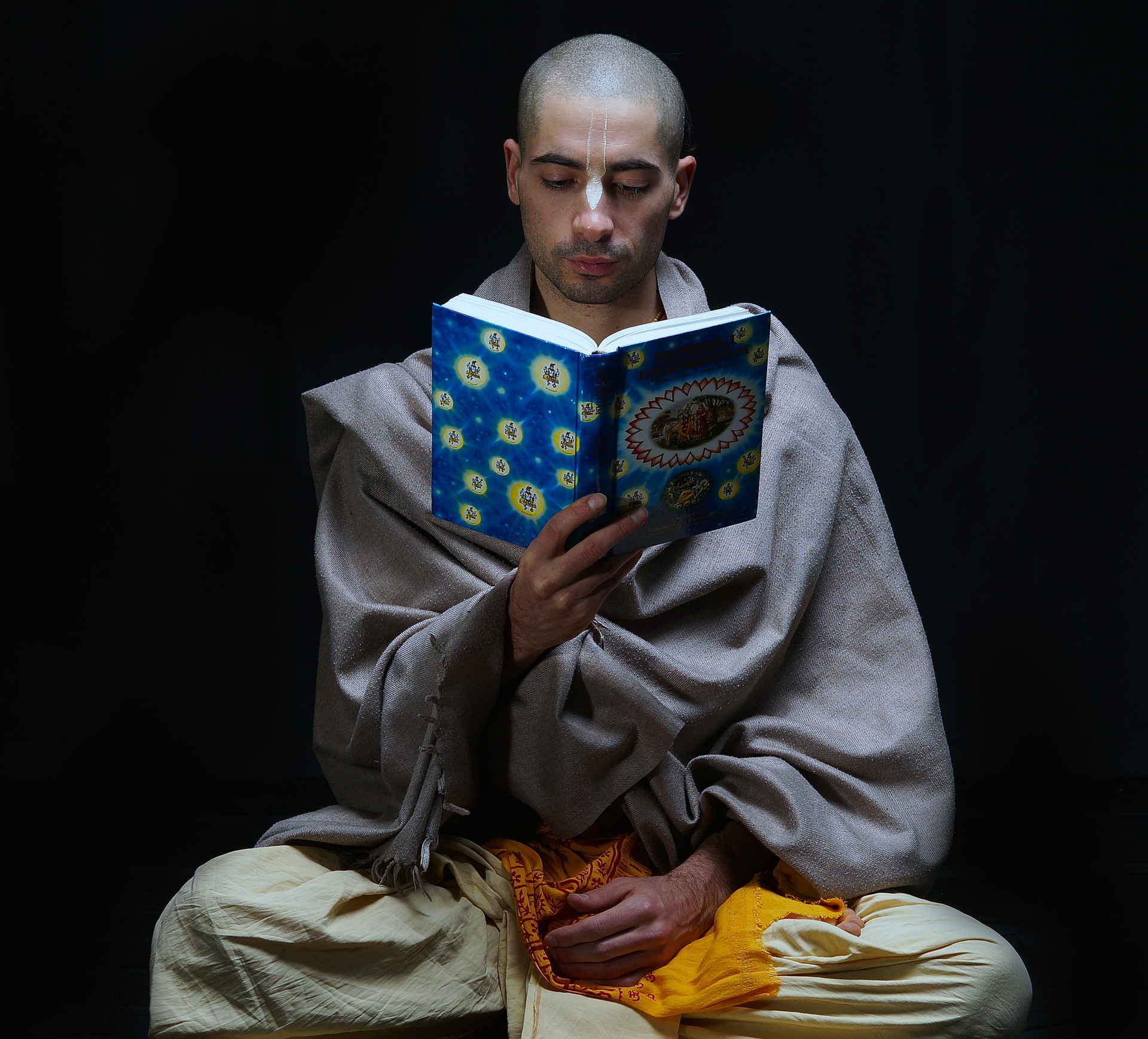 and other Purāṇas are not so expressive about such confidential pastimes, yet we find a hint of the glories of Rādhā and Kṛṣṇa in Śrīmad Bhāgavatam. And the Gosvāmīs have more fully expressed Rādhārāṇī’s devotion in their writings. In Rūpa Gosvāmī’s Padyāvalī, we find Her saying, “My Lord, people say that I have a bad reputation because of My connection with You. I do not feel any trouble in My heart because of this. My concern is that I could not give Myself to You completely. The people in general say that I am illicitly connected with You, but what disturbs Me is that I could not really give Myself to You. I feel that I am not fit for Your service. This is only the trouble within My heart.”
and other Purāṇas are not so expressive about such confidential pastimes, yet we find a hint of the glories of Rādhā and Kṛṣṇa in Śrīmad Bhāgavatam. And the Gosvāmīs have more fully expressed Rādhārāṇī’s devotion in their writings. In Rūpa Gosvāmī’s Padyāvalī, we find Her saying, “My Lord, people say that I have a bad reputation because of My connection with You. I do not feel any trouble in My heart because of this. My concern is that I could not give Myself to You completely. The people in general say that I am illicitly connected with You, but what disturbs Me is that I could not really give Myself to You. I feel that I am not fit for Your service. This is only the trouble within My heart.”
And the ecstasy of divine love increases in separation. One day, when Kṛṣṇa was playing with His cowherd boyfriends in the pasturing grounds of Vṛndāvana, Kṛṣṇa suddenly felt extreme separation from Rādhārāṇī. He sent His best friend Subala to Rādhārāṇī, saying, “Go to My Rādhā and fetch Her. Without Her, I can’t live. Suddenly I have so much desire for Her company that I can’t stand it anymore. Somehow manage to bring Her.”
Subala said, “How is it possible to bring Her here in the jungle in broad daylight?” Kṛṣṇa told him, “Somehow manage it!”
Subala thought, “What should I do?” Subala was very intimately connected with the family of Rādhārāṇī’s husband. He went to the house of Rādhārāṇī and told Her girlfriends, “Kṛṣṇa can’t tolerate separation from Rādhārāṇī any longer. He is so eager to meet Her that He is going mad. Somehow you have to arrange for Them to meet.”
“How is it possible?” the gopīs asked. Subala explained to them that Kṛṣṇa was nearby in the jungle. They discussed between themselves what to do. Subala was a beautiful boy who resembled Rādhārāṇī. So Subala took the dress of Rādhārāṇī, and Rādhārāṇī wore Subala’s cowherd dress.
When Rādhārāṇī was discovered wearing the dress of Subala, She was challenged by Her family members: “Subala! What are you doing here?” In the dress of Subala, Rādhārāṇī said, “A calf is missing and its mother is mooing. So I have come here looking for that calf.” So a calf was given to Rādhārāṇī, and She carried that small calf on her breast into the forest. In this way, Rādhārāṇī was disguised as Subala, while Subala, who had taken the dress of Rādhārāṇī, remained behind in Her room.
Rādhārāṇī had been given a hint of where Kṛṣṇa was hiding near the forest’s edge. She went to seek Him out. At last, when Rādhārāṇī saw Kṛṣṇa, She approached Him in the garb of Subala. Kṛṣṇa was mad. He could not detect that Rādhārāṇī had come, but mistook Her for Subala. He said, “Oh, Subala, you have come back without Rādhārāṇī! Couldn’t you bring Her?”
Rādhārāṇī began cutting jokes: “No,” She said, “It was impossible for me to bring Her in the daytime.” Kṛṣṇa said, “Then what am I to do? I can’t tolerate My life any longer.”
Rādhārāṇī said, “If You say so, I can go to Candrāvalī and bring her.”
“No, no,” Kṛṣṇa said, “Curd cannot satisfy the thirst for milk. It is not possible!”
Kṛṣṇa was faint with disappointment. Then Rādhārāṇī embraced Him, saying, “My Lord, can’t You recognise Your maidservant? You failed to recognise Me!” Then Kṛṣṇa was again full of joy.
Although the pastimes of Rādhā and Govinda are mentioned in the scriptures, these are all very high things. They are not ordinarily to be expressed in words, but still sometimes we are forced to speak about them because the high ideal of divine love given by Śrīmad Bhāgavatam is the supreme goal of life. Of course, the scholarship of Śukadeva Gosvāmī and Śrī Gaurāṅga Mahāprabhu has helped, to a certain extent, to establish the dignity of the proposal that love is above knowledge. It was admitted by everyone that Śukadeva held the highest attainment of the learned men of knowledge; he was unanimously admitted by the scholars to hold the highest position. Because of this, when Śukadeva Gosvāmī came to inaugurate the principle that divine love is above everything else, the scholars had to take notice. Caitanya Mahāprabhu demonstrated to the scholars that His intelligence and scholarship excelled over everyone else’s. So when He came with the tidings of divine love, then it was easier for ordinary men to accept it as the highest ideal and try for it.
So Vāsudeva Ghoṣa says, yadi gaura nā haite, tabe ki haita kemane dharitām de. If Mahāprabhu had not appeared in this Kali-yuga, then how could we tolerate living? How could we sustain our lives? What He has given – the very gist of life, the very taste, the charm of life – without that, we think it is impossible for anyone to live in this world. Such a thing has been invented, discovered by Gaurāṅga. If He had not come, then how could we live? It is impossible to live devoid of such a holy and gracious thing as divine love. Without Caitanya Mahāprabhu, how could we know that Rādhārānī stands supreme in the world of divine love? We have received all these things from Him, and now we think that life is worth living. Otherwise to live would be suicidal.
And serving those who can serve Rādhārāṇī is the way to approach Her vicinity. By serving the servants of the servants, we are assured of success in getting the grace of Kṛṣṇa. If somehow one can be counted in the group of Śrīmatī Rādhārāṇī’s servitors, one’s future is assured.
Within the group of Rādhārāṇī’s servitors, we aspire to be Rūpānugas, followers of Śrī Rūpa. And the followers of Śrī Rūpa will have great earnestness to look after the order of Śrī Rūpa, as he does towards Lalitā. In this way, through Rūpa Gosvāmī, our devotional service is going to the highest plane. And our highest gain is only there. Not even our connection with Rādhārāṇī or Lalitā Devī is the highest goal of life, but our highest aspiration is to serve in the Rūpānuga sampradāya; that means that our highest attainment is in Śrī Rūpa’s connection.
Rādhā-dāsyam has been said to be the highest attainment. Why? The quality and quantity of rasa that Rādhārāṇī can draw from Kṛṣṇa can never be found anywhere else. So if you are situated just behind Rādhārāṇī, you’ll be allowed to taste not only the quantity, but the highest quality of rasa.
No other person can draw such high rasa from Kṛṣṇa. The fullest, highest type of quality is drawn from Kṛṣṇa: He gives Himself fully and wholly and deeply. So if you are in Śrī Rūpa’s group, then you can have a taste of that sort of rasa.
In Rādhārāṇī’s camp, when Kṛṣṇa and Rādhā are enjoying very solitary pastimes in a secluded place, the grown-up sakhīs can’t venture to enter the room and assist Them. The young girls, the mañjarīs, are sent there. The leader of that young group can enter where both Rādhā and Govinda are very closely connected, when even the sakhīs do not venture to go for fear of causing some interruption. But Rūpa and the mañjarīs can enter there at that time due to their young age. That sort of rasa that cannot be had even through the sakhīs can be had only through the mañjarīs.
Bhaktivinoda Ṭhākura prays to gain admission there. He has such a high quality of aspiration. He says, rūpānuga haite sei dayā. He runs to be enlisted in the group of Rūpa, who can grant us that sort of prospect. And Prabhodānanda Sarasvatī has described the prerequisite for understanding all these things:
yathā yathā gaura-padāravinde
vindeta bhaktiṁ kṛta-puṇya-rāśiḥ
tathā tathotsarpati hṛdy akasmāt
rādhā-padāmbhoja-sudhāṁbu-rāśiḥ
“As much as you surrender to the lotus feet of Śrī Gaurāṅga, you’ll find yourself safely situated in the service of Rādhā-Govinda. Don’t try to approach Rādhā-Govinda directly; if you do, there may be some difficulty. But the lotus feet of Śrī Gaurāṅga will take you there safely.”
In my Sanskrit poem dedicated to Bhaktivinoda Ṭhākura, I have explained all these points:
śrī-gaurānumataṁ svarūpa-viditaṁ rūpāgrajenādṛtaṁ
rūpādyaiḥ pariveśitaṁ raghu-gaṇair āsvāditaṁ sevitam
jīvādyair abhirakṣitaṁ śuka-śiva-brahmādi-saṁmānitaṁ
śrī-rādhā-pada-sevanāmṛtam aho tad dātum īśo bhavān
“What was sanctioned by Śrī Caitanya Mahāprabhu by His descent was intimately known only to Śrī Svarūpa 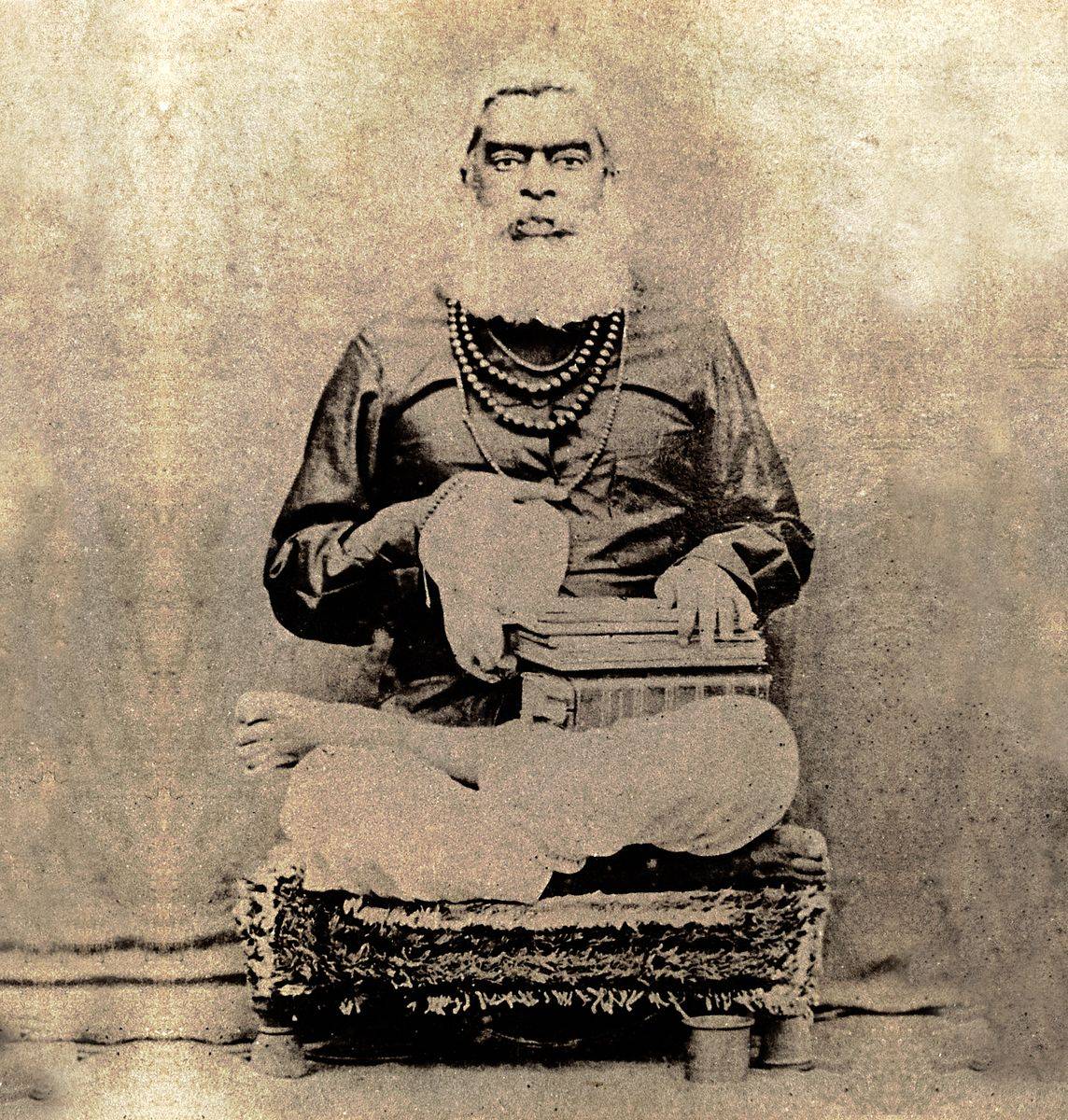 Dāmodara Gosvāmī. It was adored by Sanātana Gosvāmī and served by Rūpa Gosvāmī and his followers. Raghunātha Dāsa Gosvāmī tasted that wonderful thing fully and enhanced it with his own realization. And Jīva Gosvāmī supported and protected it by quoting the scriptures from different places. The taste of that divine truth is aspired for by Brahmā, Śiva, and Uddhava, who respect it as the supreme goal of life. What is this wonderful truth? Śrī-rādhā-pāda-sevana – that the highest nectar of our life is the service of Śrīmatī Rādhārāṇī. This is most wonderful. O Bhaktivinoda Ṭhākura, you are our master. It is within your power to allow them to bestow their grace upon us. You are in a position to bestow the highest gift ever known to the world upon us all. It is at your disposal. O Bhaktivinoda Ṭhākura, please be kind to us and grant us your mercy.”
Dāmodara Gosvāmī. It was adored by Sanātana Gosvāmī and served by Rūpa Gosvāmī and his followers. Raghunātha Dāsa Gosvāmī tasted that wonderful thing fully and enhanced it with his own realization. And Jīva Gosvāmī supported and protected it by quoting the scriptures from different places. The taste of that divine truth is aspired for by Brahmā, Śiva, and Uddhava, who respect it as the supreme goal of life. What is this wonderful truth? Śrī-rādhā-pāda-sevana – that the highest nectar of our life is the service of Śrīmatī Rādhārāṇī. This is most wonderful. O Bhaktivinoda Ṭhākura, you are our master. It is within your power to allow them to bestow their grace upon us. You are in a position to bestow the highest gift ever known to the world upon us all. It is at your disposal. O Bhaktivinoda Ṭhākura, please be kind to us and grant us your mercy.”
So Śrī Caitanya Mahāprabhu, our most benevolent Lord, has come to search for His long-lost servants and to give to them this highest ideal of divine love. Gaura-haribol!
Image/Art made possible by Pixabay.com, Krishnapath.org and/or Bhaktiart.net









